Winifred Atwell - 'The Amazing Miss A'
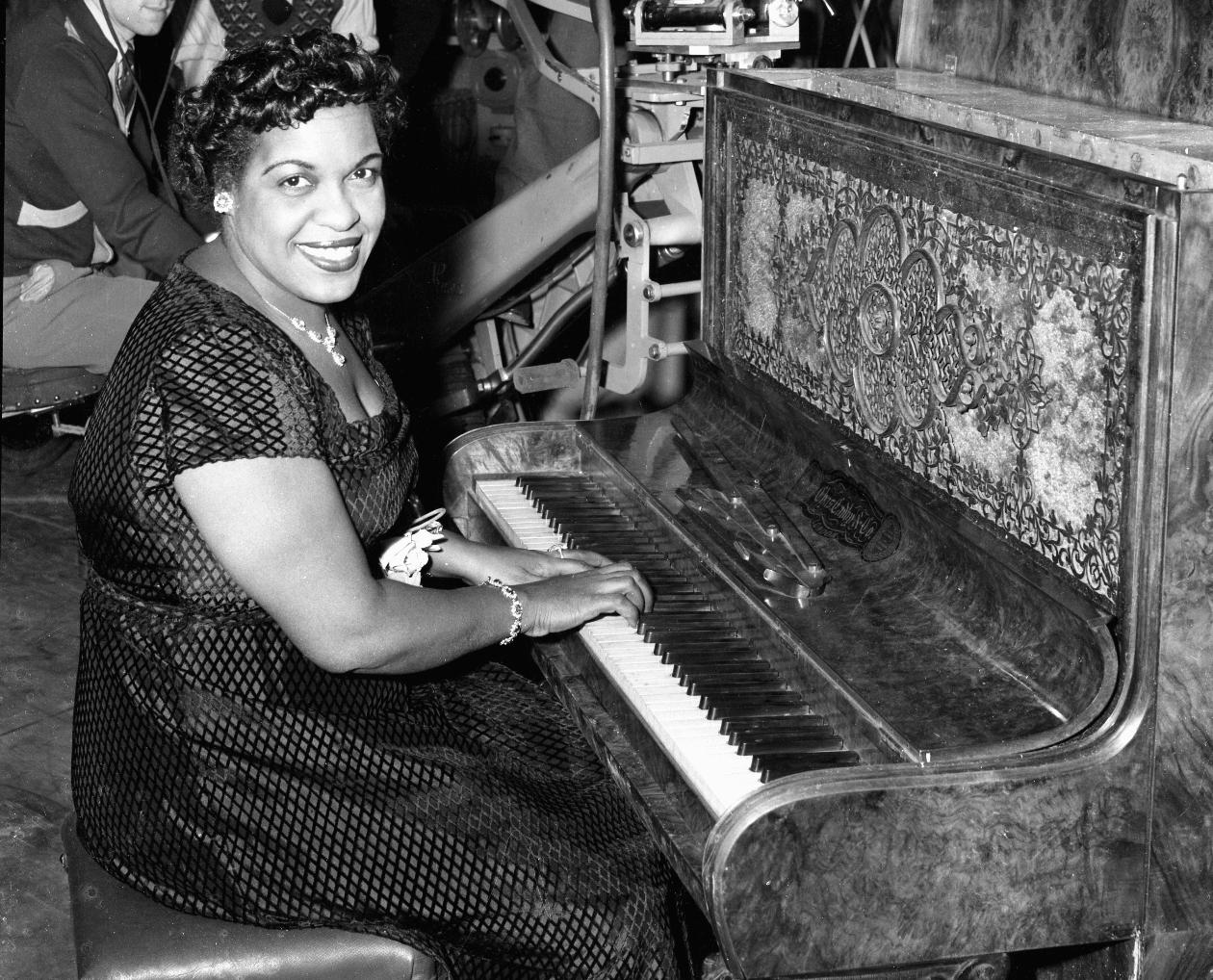
Una Winifred Atwell (27 February or 27 April 1910 or 1914 – 28 February 1983) pianist and entertainer, was born in Tunapuna, near Port of Spain, Trinidad, the only child of Frederick and Sarah, a chemist and a district nurse.
'Winnie', as she was known by those who loved her, began playing the piano at the age of four. Within a few years, aged six, she was giving recitals of Chopin at charity concerts and became a popular musician locally. As a young woman she worked in her father's chemist shop, and he insisted that she took a degree in pharmacy. However, in her spare time she continued to take part in charity concerts and entertain friends with her playing.
She played for American servicemen at the Air Force base (which is now the main airport) during WWII.
It was while playing at the Servicemen's Club at Piarco that someone bet her that she could not play something in the boogie-woogie style that was popular back home in the United States. She went away and wrote "Piarco Boogie", which was later renamed "Five Finger Boogie".
Winnie left Trinidad in the early 1940s and travelled to the United States to study with classical pianist Alexander Borovsky. A newspaper clipping reveals that she played in a concert at The Town Hall in New York on 10 May 1945, as part of a presentation by the Altruss Opera Company starring Paul A. Smith, a well-known tenor.
On 6 October 1945, it was announced that "the noted West Indian pianist" had left for England where she would broadcast for the BBC on Tuesdays and Thursdays. In London, Winifred gained a place at the Royal Academy of Music where she completed her musical studies. She became the first female pianist to be awarded the academy's highest grading for musicianship.
To support her studies, she played rags at London clubs and theatres. From those modest beginnings in variety she went on to top the bill at the London Palladium. She said later, "I starved in a garret to get onto concert stages."
On 21 October 1946, Atwell appeared on BBC TV program "Stars In Your Eyes", which was quickly followed by several radio appearances on the Light Programme. In January 1947, she headed the bill of "Come to the Show" at the Empire Theatre, Belfast, where she was billed as "radio's most versatile pianist". Frequent radio appearances continued, including the well-known "Variety Bandbox" show. She appeared on the variety stages too, sometimes with another pianist called Donald Thorne.
Ms Atwell attracted attention with an unscheduled appearance at the Casino Theatre(originally, and now once again, called the Prince Edward Theatre) in Old Compton Street in place of the glamorous actress and singer Carole Lynne who had been feeling unwell. During this performance she caught the eye of entrepreneur Bernard Delfont, who put her on a long-term contract in 1948.
Atwell was championed by popular disc jockey Jack Jackson, who introduced her to Decca Records promotions manager Hugh Mendl. Mendl launched his career as a staff producer at Decca by producing Atwell's recordings. She released a number of discs for Decca in 1951 that were well received. "Jezebel" sold well, but it was another disc that catapulted her to huge popularity in the UK. A complex arrangement called "Cross Hands Boogie" was released to show her virtuoso rhythmic technique, but it was the B-side, a 1900s tune written by George Botsford called "Black and White Rag", that was to become a radio standard. The record sold over one million copies, and was awarded a gold disc.
"Black And White Rag" started a craze for her honky-tonk style of playing. The rag was originally performed on a concert grand for the occasion, but Atwell felt it did not sound right, and so got her husband to buy a honky tonk piano for just over £2 from a junk shop in Battersea, London, which was used for the released version of the song.
Soon after her arrival in England Winifred married Reginald ‘Lew’ Levisohn. He gave up his stage career as a variety comedian to become her manager. He encouraged her to play her piano more and more in the rollicking honk-tonk upbeat style that was almost completely her own.
Reginald Edward George (Lew) Levisohn, the son of Edward George and Levisohn and Edith Flood, was born April 23 1920 and baptised May 9 1920 at Christ Church, Battersea, London, England. The family lived at "Vicarage Wharves" and his father was a cigar stock keeper.
Reginald and Winifred Atwell were married in 1947 in London.
Biographers state Lew was vital in shaping her career as a variety star. They were inseparable up to Levisohn's death in December 1977. They had no children.
He cannily made the choice, for stage purposes, of her playing first a concert grand, then the beaten-up old upright piano. The latter became famous as "my other piano", and would later feature all over the world, from Las Vegas to the Sydney Opera House, travelling over half a million miles by air throughout her concert career. While contributing to a posthumous BBC Radio appreciation of Atwell's career, Richard Stilgoe revealed that he had become the owner of the famous "other piano".
When Atwell first came to Britain, she initially earned only a few pounds a week. By the mid-1950s, that had shot up to over £10,000. By 1952, her popularity had spread internationally. Her hands were insured with Lloyd's of London for £40,000, the policy stipulating that she was never to wash dishes.
In 1951 she signed a contract with Decca, and her sales were soon 30,000 discs a week. In 1952 she appeared in the first Royal Variety Performance for the new queen, Elizabeth II. To a rapturous reception, Winifred closed her act with ‘Britannia Rag’, a number she had composed specially for the occasion and which reached Number Five in the pop charts.
Winnie was by far the biggest-selling pianist of her time. Her 1954 hit, "Let's Have Another Party", was the first piano instrumental to reach number one in the UK Singles Chart.
She is the only holder of two gold and two silver discs for piano music in Britain, and was the first black artist in the UK to sell a million records. She was the first black artist to have a number-one hit in the UK Singles Chart and as of 2023, remains the only female instrumentalist to do so.
Millions of copies of her sheet music were sold, and she went on to record her best-known hits, including "Let's Have a Party", "Flirtation Waltz", "The Poor People of Paris" (which reached number one in the UK Singles Chart in 1956), "Britannia Rag" and "Jubilee Rag". Her signature "Black and White Rag" became famous again in the 1970s as the theme of the BBC snooker programme Pot Black, which also enjoyed great popularity in Australia when screened on the ABC.
Atwell's peak was in the second half of the 1950s, during which her concerts drew standing-room-only crowds in Europe and Australasia. She played three Royal Variety Performances and appeared in every capital city in Europe. Some sources state she played for over twenty million people and sold over twenty million records.
At a private party for Queen Elizabeth II, she was called back for an encore by the monarch herself, who requested "Roll Out the Barrel". She became a firm television favourite and had her own series in Britain. The first of them was Bernard Delfont Presents The Winifred Atwell Show. It ran for ten episodes on the new ITV network from 21 April to 23 June 1956, and the BBC picked up the series the following year.
In 1956 Winifred opened her hairdressing salon on Railton Road in Brixton. She had initially lived nearby although by now she lived with Lew in the more salubrious Hampstead, but Atwell still kept property in Brixton. Isabelle Lucas, a Canadian actress originally, who performed in numerous National Theatre productions, once spoke about Atwell:
''In those days there were no black salons for black women in this country. Black women styled their hair in their kitchens. I needed advice on how to straighten and style my hair, but I didn’t know any black women in Britain. I had only heard about Winifred Atwell. So one day I looked her up in the London telephone directory and found her listed! I rang her, and to my great surprise she answered! I explained my predicament, and she invited me to her home in Hampstead. It was as easy as that! I met her lovely parents, whom she brought to this country from Trinidad, and Winifred gave me some hair straightening irons.''
On a third triumphal tour of Australia, she recorded her own Australian television series, which screened in 1960–1961. This had been preceded in 1955 by appearances on 'Jukebox Jackpots' on 2UW.
During her career she earned a fortune, and her fame would have extended to the US but for the obstacles caused by segregation. Her breakthrough appearance was to have been on The Ed Sullivan Show in 1956, but on arrival in America she was confronted with problems of selling the show in the South with a British-sounding black woman. Her appearance was never recorded. She did, however, have a guest appearance on the Arthur Godfrey show two years later.
Life in Australia: Bilgola, Whale, Palm and Narrabeen Beach
Reginald and Winifred sailed aboard the Stratheden on 30 December 1954 from London to Brisbane, Australia. One local paper preceded her arrival with:
WINIFRED ATWELL
Girl with the Golden Touch
By PETER NICHOLAS
WHEN Ana Winifred Atwell arrives in Australia in a few weeks from now, she will bring with her from London a piano that cost her £2/10/-. She is insuring it for £12,500.
It is a very ordinary piano, and just a little out of tune. But when 37-year-old Winifred Atwell hits it, the piano brings her in £1250 a week, plus several more thousands a year for the records of the noise she makes.
No wonder she has taken a long time to make the trip to Australia, even though she will get £2000 a week while she is here.
Six nights of every week, for more than a year, Winnie has been playing piano for about 20 minutes in London's near-naked revue show Folies Bergere. And the way she plays causes more feet to pound the floor and more whistles to rent the smoke laden air than even the sight of the lovelies who stand so still unadorned and beautiful in the background.
It is a strange setting, this glare of the footlights among shimmering chorus girls, for a girl who was first brought to Britain by the British Arts Council.
The BAC's main purpose is to peddle the British way of life by spreading English culture around the world. When they brought Winifred over from her home in Jubilee. St., Tunapuna, Port of Spain, West. Indies, they started something they could not stop, and a large slice of Britain became West Indian-minded.
Bach to Boogie
But the BBC were not to know this would happen. When they gave Winifred a helping hand she was a strictly Bach - and - Beethoven girl, and had been working at' the classics since she was four.
As a classical pianist she was one of the best, but that is not good enough in Britain. You have to be at the top to make the grade in serious music, and there was another thing— Winnie is a colored girl, built on generous lines, and full of such joy and the zest for living that the cold, intellectual climate of England was disturbed by this gust of warm personality from sunny tropical seas.
Even the lions tapped their feet when Winnie pounded out Boo-gamba in their cage at a London charity show. "I didn't notice them," she said "all I could hear were my knees knocking together."
When she found she was not melting this somewhat frigid atmosphere, Winnie deserted the stiff-shirted concert hall audiences and decided to get in touch with the average people, for a change.
She remembered how she had "wowed" the servicemen of all nations in Trinidad during the war with her Five Finger Boogie (after a short lesson from sprinter McDonald Bailey, Winnie had mastered the rolling bass routine), and set out to try a different road to success — through the music halls of England.
She had more than one performance of Five Finger Boogie to help her, of course. During the war she had taught herself to play half a dozen types of jazz and Dixieland music from records. With her excellent technique and her quick, sympathetic ear, she had mimicked jazz masters such as Fats Waller, Charlie Kunz and Rae Da Costa, until she could sound like any one of them at will.
Come to that, she imitated Rachmaninoff so well that the experts at London's Royal School of Music were astounded at her brilliance.
Now, Winnie wanted to develop a style of her own, and, playing-on a beat-up, music hall piano, one night, she suddenly felt she had something. It was the sort of piano, Winnie says, that "you always seem to hear the neighbor's children practising on —you know, kind of tinny".
Luxurious home
"People are always telling me they could play like me if they had a piano like mine. Bless them, they've got one. My 'other piano' is just the same as all the thousands of pianos that people stand their beer glasses on and leave their cigarettes burning into at parties all over the world."
Serious jazz and be-bop fans have proper names for this sort of instrument. They call them honky-tonk, or barrelhouse pianos, or, in Europe, cafe pianos. And plenty of people try to play them hot, fast and loud the way Winifred does.
What they lack, of course, is Winnie's 33 years of rigorous training at the keyboard.
Winnie set about moulding her own style of happy, jangly music, which has taken her into world class as a popular pianist. It takes' determination to do that, but Wihifred Atwell has always been strong on determination.
When she was born her parents (who now live with herein a £10,000 house in an exclusive suburb a few miles north of London) had divided opinions about their baby daughter. Father was a.little disappointed because she was not a boy who would grow up to take over his chemist shop. Mother did not want her to study chemistry (which she did to please her father) and thus have no time for music.
Winifred did both. She earned her chemistry diploma to please her father, and started learning music when she was four to please her mother.
She gave her first recital when she was six, and, at the end of it, clapped harder than anyone else in the hall. "I wasn't applauding myself. I was clapping Chopin, the guy who wrotfe the music. I have a great reverence for the classics, and I never mess about with them."
Golden Touch
The way Winnie plays her honky-tonk piano causes more feet to pound the floor and more whistles to rend the air than the sight of all the naked lovelies at the famed Folies Bergere.
Nor does she. Part o.f her act in the middle of the Folies Bergere show is devoted to a couple of pieces by Liszt, or Rachmaninoff, and the audience sit as still as mice while she plays them.
Even the near-nudes holding the baskets of fruit backstage stop swaying when Winnie is in her serious mood.
But then comes the moment everyone is waiting for—the old piano is wheeled on and a man places a wooden kitchen ehair at it for Winnie to use.
Hot, fast, loud
It is quite a sight to see Winnie in her £200 gold lame evening dress and five-inch shops swirl across to sit down to her favorite performance.
She turns on the dazzling, happy smile and is rolling through the open bars of Black and White Rag, or some other Atwell hit, before she has her feet on the pedals.
Every now and again she gives a big, joyous wink to the boys. It is a trick she learned one night when she had something in her eye and couldn't stop blinking to get it out while she played. The blinking was such a success she has kept it in the act ever since—and she doesn't mind admitting this little piece of trickery.
Winifred Atwell is like that; she hates any form of insincerity.
The definition of jazz by the great originator of this form of music, the late Jelly Roll Morton of New Orleans, is that it should always be "sweet, soft and plenty rhythm". Winifred's recipe is different. She plays everything hot, fast and loud with a "stomp" bass and even she sometimes looks at her hands cavorting on the keyboard as though she can hardly believe they are moving so fast.
Serious jazzmen still do not admit Winifred is a musician. This gives a big laugh to Winnie's husband, Lew Chesney. Lew is a big, jolly man, not unlike Charles Laughton to look at, who leads a busy life keeping his wife's many engagements straight. He arranges all her contracts for stage shows, radio sessions and recordings, and organises all her many performances in public so that her thousands of fans can see her as often as possible.
Lew has not much time for the jazz purists who criticise the Atwell style. "These jazzmen sweat away year in year out playing Dixieland blues—and selling one record for every 100 Winnie sells," he said recently. "Yet they say she can't play piano."
"Nor I can," says Winnie. "Not jazz. But if they're happy playing their way, and they're making other people happy, why worry about it?"
Nothing worries Winifred Atwell for that matter, unless it is being too tired. A few weeks ago I was talking to her in her dressing-room backstage at the Prince of Wales Theatre in Leicester Square, between shows, and the best grin she gave was when she thought about her Australian tour.
It will be a holiday compared to the gruelling routine she follows in London, which includes six doubleshows every week, a radio session on Sundays over Radio Luxembourg, and recording sessions jammed in between.
Winnie looks wonderful when she stalks on stage in her shimmering sequins under a pink spotlight and her smile blinds the first six rows in the stalls, but what she longs to do is have time to potter about at home, to drive around idly in her big scarlet Cadillac and play with her chinchilla Persian, Nicky.
Winifred's home, Greentrees, is deep, soft luxury all over from its ankle-deep carpets to its rosy glow of indirect lighting on the pastel shaded walls.
Its most precious treasure is Winifred's grand piano. She took years to pay for it when she was a poor student, and it always moved with her from lodging-house to lodging-house.
It has been manhandled up and down a dozen narrow stairways, and even slung in through windows in its time, but never deserted.
Winifred plays on it an hour or so every day—and only classical music.. She knows she will lose her dazzling technique if she lets up on the old masters.
Barrel house style
There is another reason why she can't play her own popular barrel house style on the grand piano—it is in tune. Lew Chesney never travels to a new town or studio without a tuning hammer in his bag. It's .easier than carrying the "other 'piano" about.
"You've got to watch the tuning very closely," Lew says. "All the notes must be just a little off to get the right effect, and, people are so helpful, they drive you crazy.
"Every time Winnie is asked to play on an upright, someone has just been to the" trouble of having it tuned correctly to make it nice for her. My job is to un-tune it a little without hurting anybody's feelings."
Winifred Atwell has sold more than half a million of her Black and White Rag recordings and hundreds of thousands of others. It has made her rich and the sales go on climbing to make her richer. But money does not spoil the girl from Jubilee St., Tunapuna.
She sounds as happy at the piano as she looks, aind she will play anywhere, anytime, if she feels there is an audience to be made happy.
The time she played in a lion's cage to please her circus manager friend Jack Hylton, even the lions started tapping their feet when she pounded out Boogamba for them.
"I didn't notice them doing it myself, Winnie said after the show, "but that's what the fans claimed. All I could hear was my knees knocking together " PERSONALITY (1954, December 25). The World's News (Sydney, NSW : 1901 - 1955), p. 7. Retrieved from http://nla.gov.au/nla.news-article133914656
About that 'lion story' - they may not have been tapping their paws:
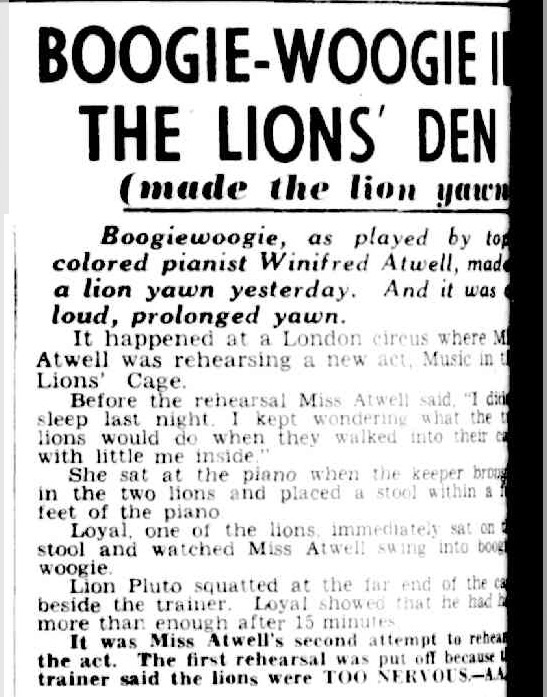
BOOGIE-WOOGIE THE LIONS DEN (1953, December 24). The Sun News-Pictorial (Melbourne, Vic. : 1922 - 1954; 1956), p. 8. Retrieved from http://nla.gov.au/nla.news-article279931147
In early 1955 they arrived in Australia and Winifred was greeted as an international celebrity. Her tour broke box-office records on the Tivoli circuit, bringing in receipts of £600,000. She was paid £5,000 a week (the equivalent of around $50,000 today), making her the highest-paid star from a Commonwealth country to visit Australia up to that time.
Although she initially had a place in town Bilgola House, on Bilgola Beach, was where she spent most of her time.
Sue Harrington, née Robison, whose family had moved to Avalon Beach in 1948, recalled:
''John Stapleton, a local real estate agent of then, pleaded with Mum to look after Winnie. He had leased the Bilgola House to her.
My Mum, Adele Robison, had the Adele Robison Copying Service as her business.
Mum looked after all the work for the RSL, Bowling Club, Avalon School (published "We Sing a Song" each year which was poems and essays from the students). She also looked after Moby's Dicks at Whale Beach as well as looking after Winnie and Lew and many charity groups in the Avalon area.
My mother was her secretary from the 1950's until the early 1970's. I spent many weekends helping to send out replies to fan mail, photos, tie pins and cufflinks.
Mum wrote fan letters for her on aerogrammes – typed up. Winnie would sign the bottom of a pile of these and then away Mum would go, answering all the fan mail.
My Dad was ex Army Lt Col: Sydney Yukon Robison. He put a Committee together and built Avalon RSL (and was Secretary/Manager for many years) followed by the Bowling Club. He was President Avalon School P & C for all the years my brother and I were at Primary School.
We moved to Avalon in 1948 (I was one). Dad built our home at 3 Ruskin Rowe Road Avalon, the land cost £250. It was the Lands Department Weatherboard Home of the Year in 1954. My brother told me it was the first split level home in Sydney, however I have never been able to confirm that.
''Winnie lived on the beachfront at Bilgola Beach. She recorded "On the Beach" on the balcony of the house with the sound of the ocean in the recording. My piano upright German piano still had candlesticks on it - was transported from our home in Avalon for the recording.
This was only a little record, a 45 not a 78.
I remember being over at the Bilgola House, I went there many times, and her musos were there for rehearsal.
They used to practice down there – the only two I truly remember were Don Burrows and George Golla on guitar. That’s where they would rehearse and work out what they were going to do.
Cyril Bevan was on drums. An Englishman, he had arrived in Australia with Winifred Atwell.
Her main nightclub in those days was Chequers, which was in the city.
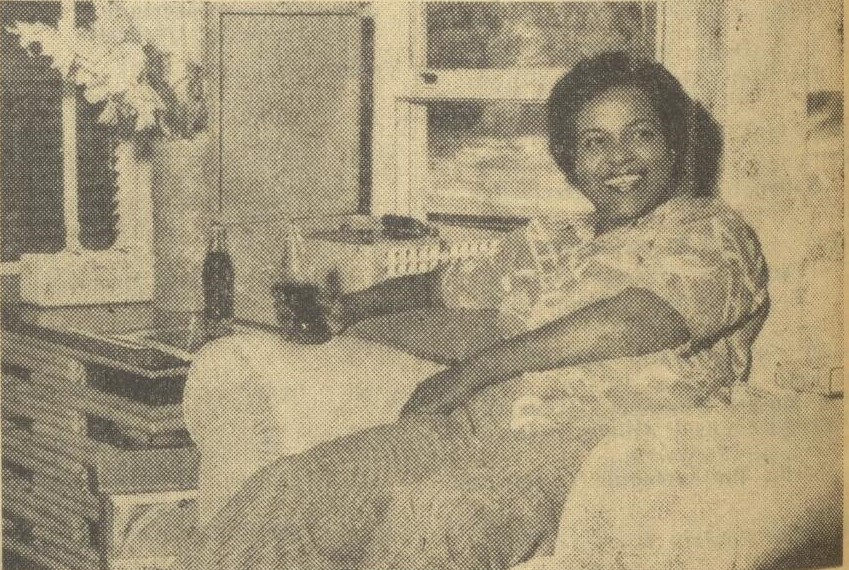
WINIFRED ATWELL relaxes at her weekend beach house in Sydney. She listens to her own Winifred Atwell show regularly with a critical ear. Australian Broadcasting Commission. (1939 Vol. 17 No. 16 (16 April 1955). No title, ABC weekly Retrieved from http://nla.gov.au/nla.obj-1699721688
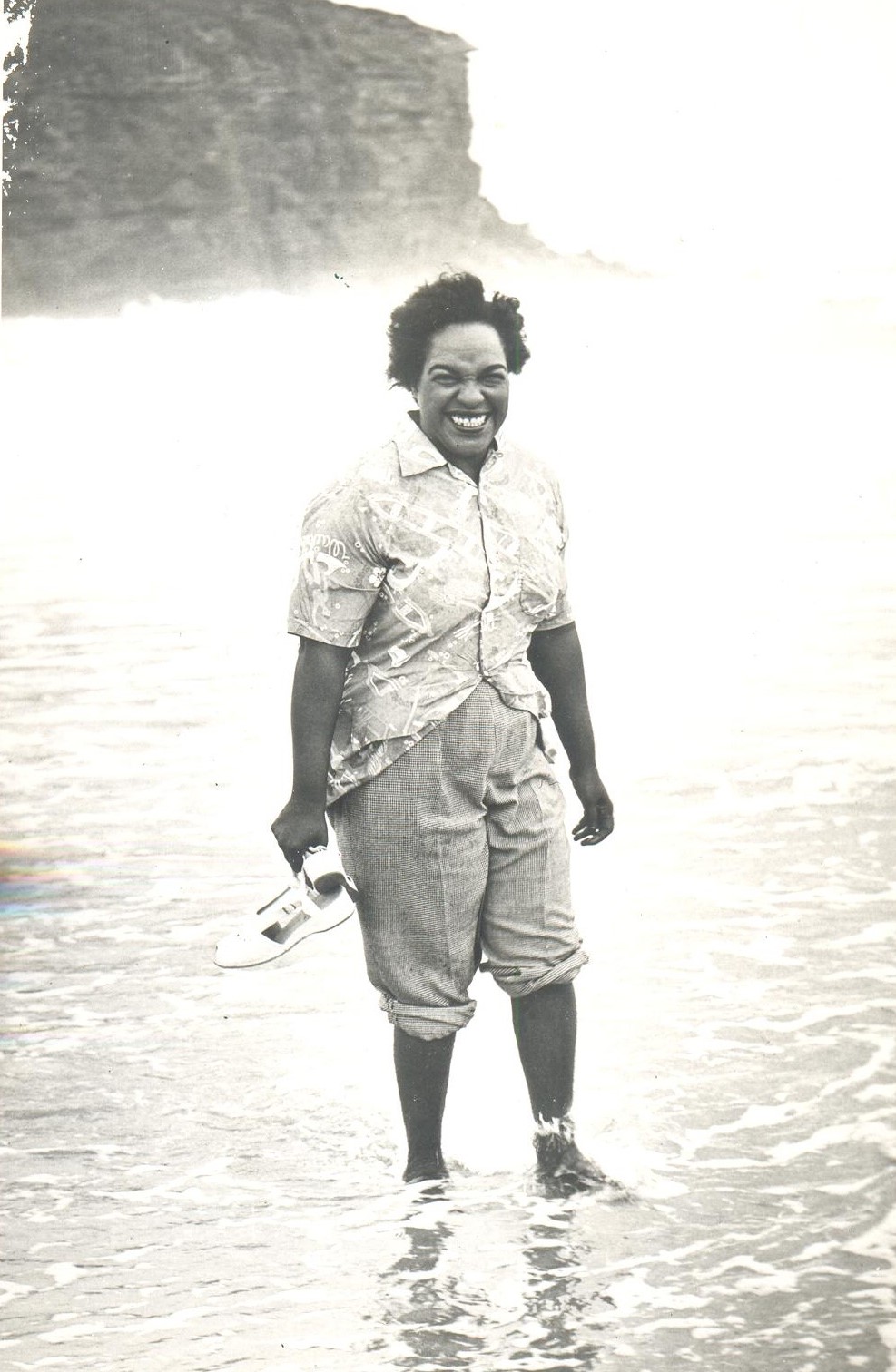
Paddling at Bilgola Beach, 1955
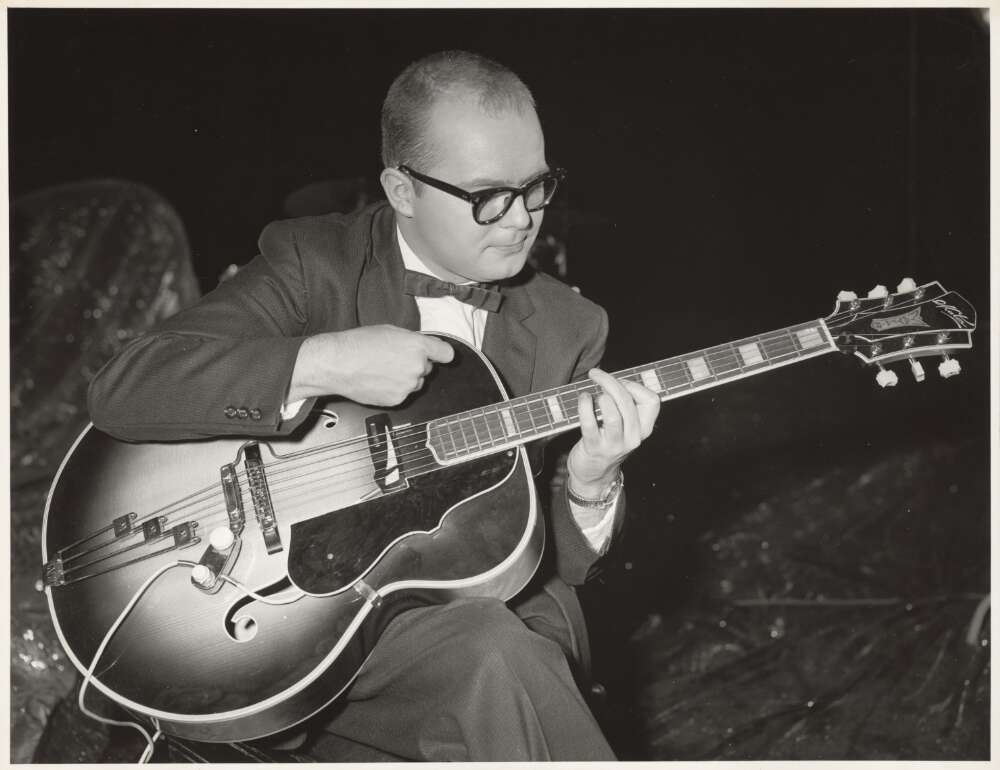
photo by Hearder, John. (circa1955). Guitarist George Golla playing on a Maton Mayfair guitar (in the NLA Winifred Atwell collection) Retrieved from http://nla.gov.au/nla.obj-144635819
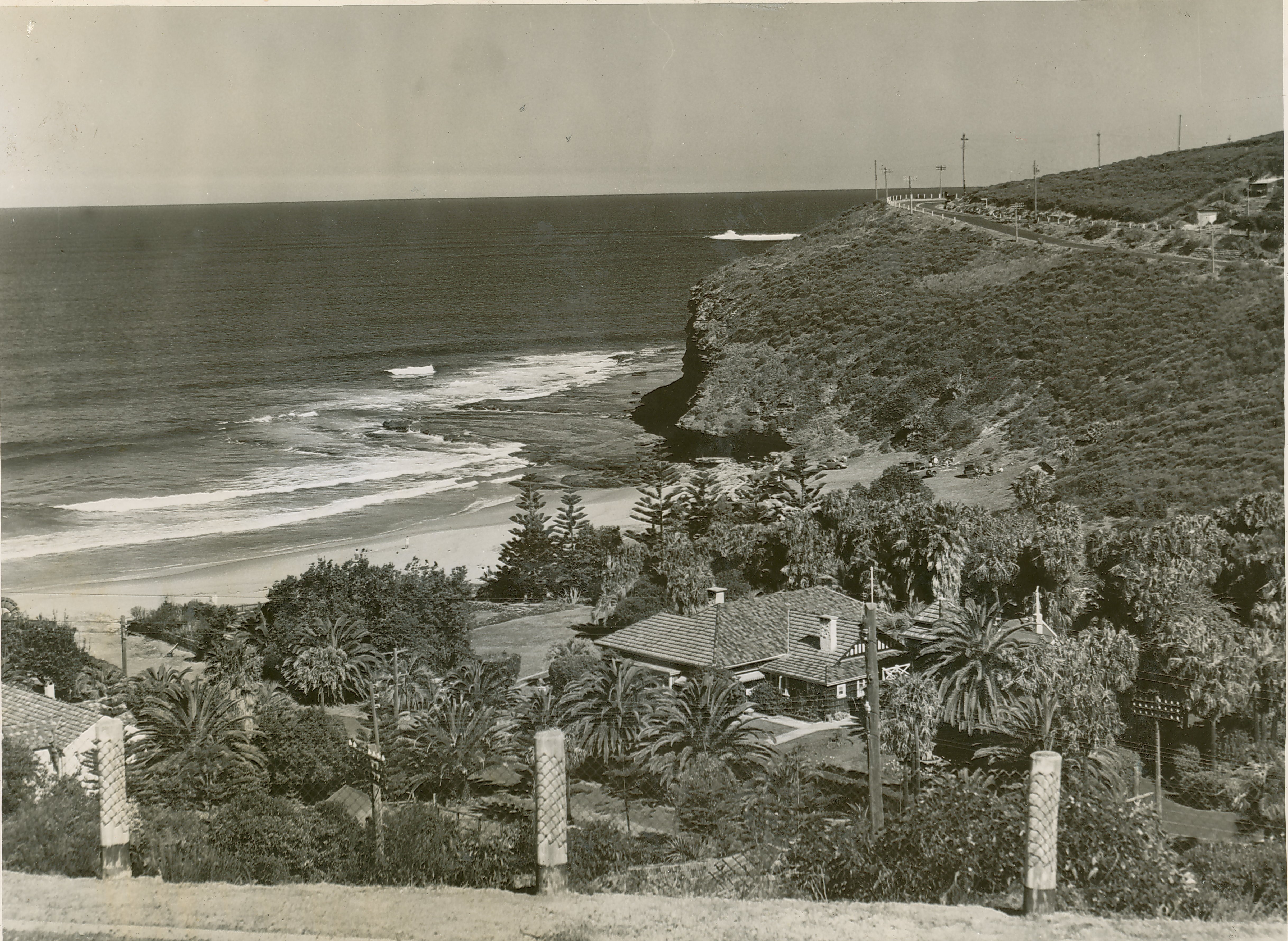
Bilgola beach and Bilgola House circa 1935-40, Item: FL281268 courtesy NSW State Records and Archives
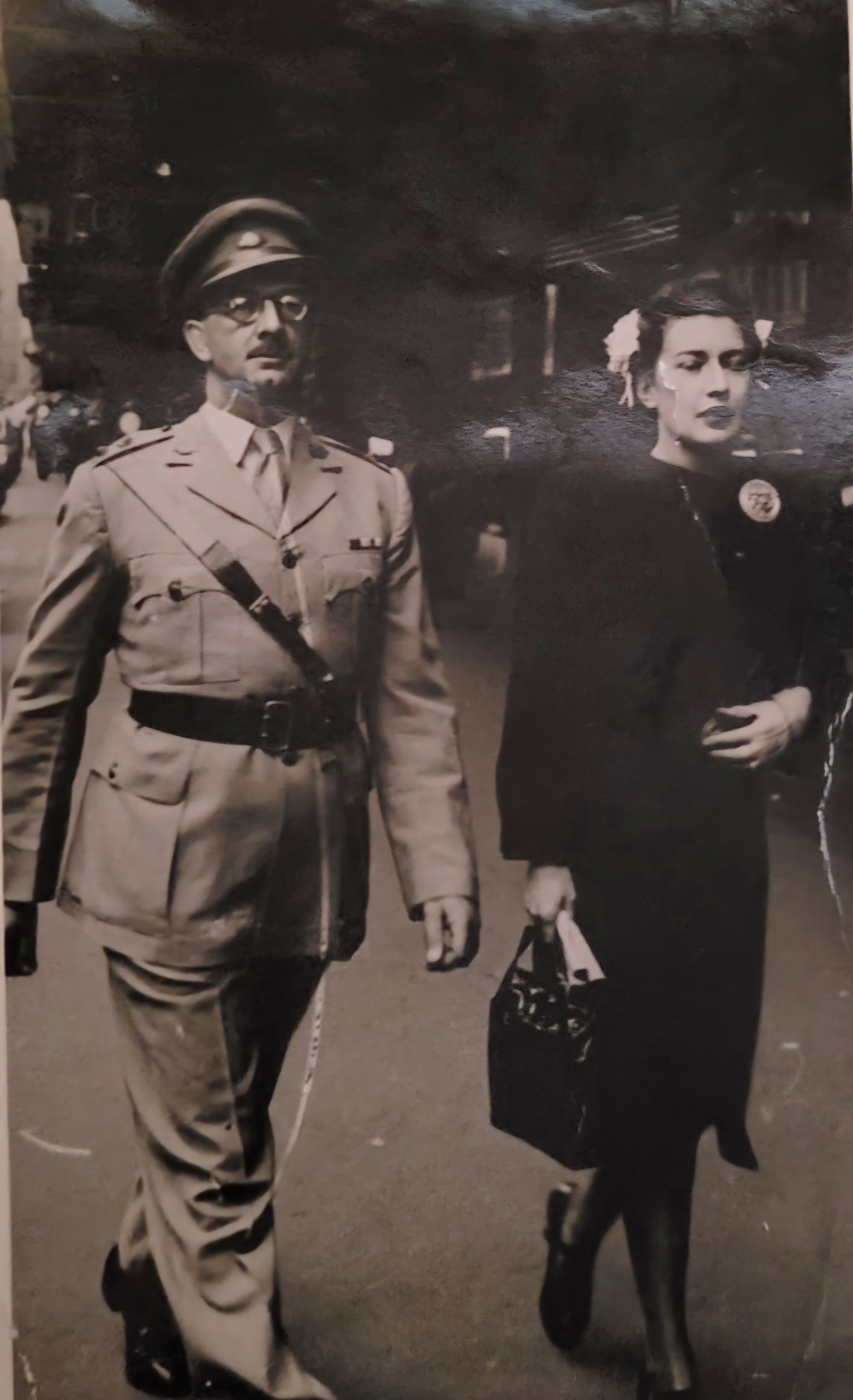
Adele and Lt. Col Sydney Yukon Robison
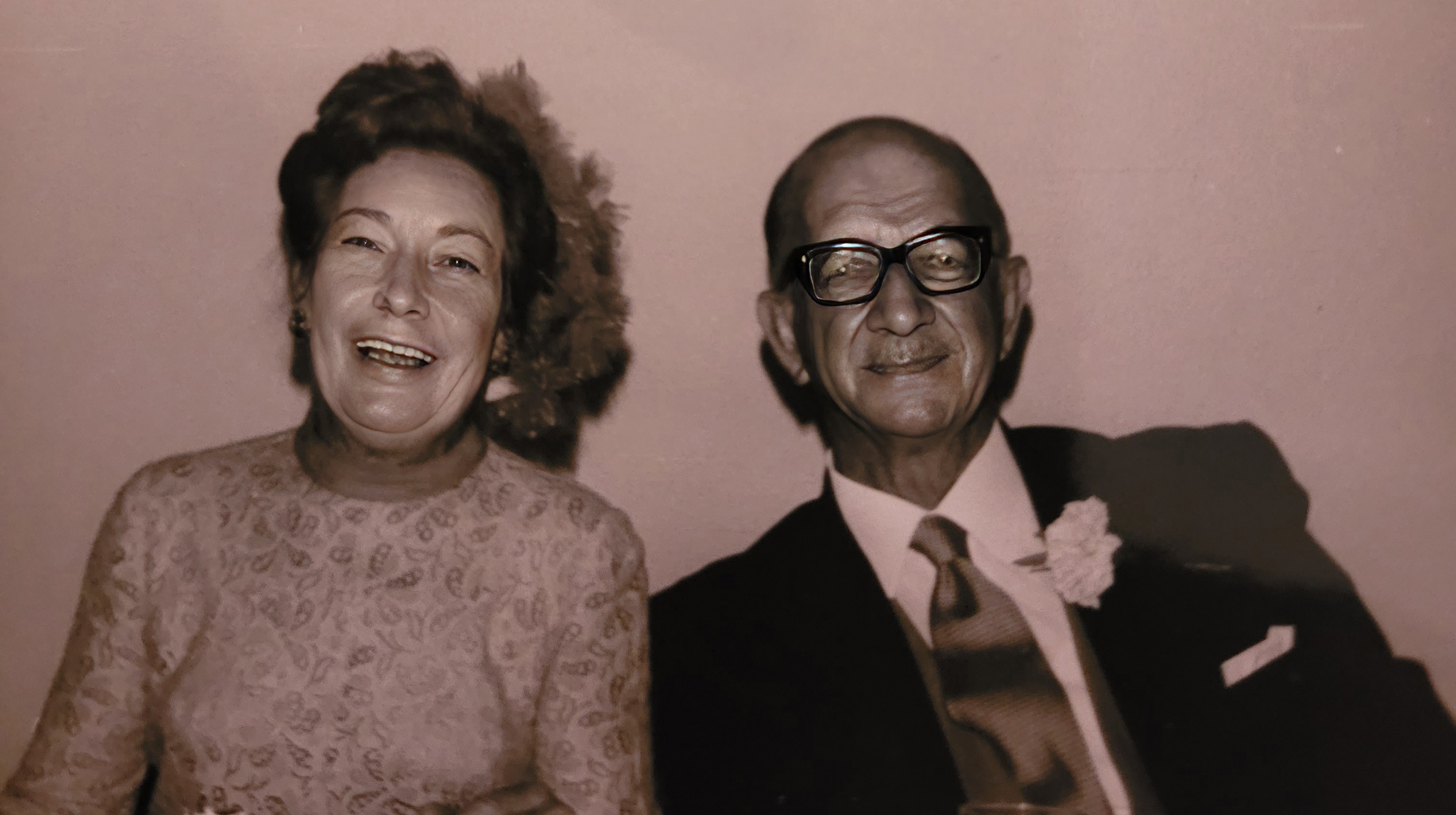
Adele and Sydney Yukon Robison
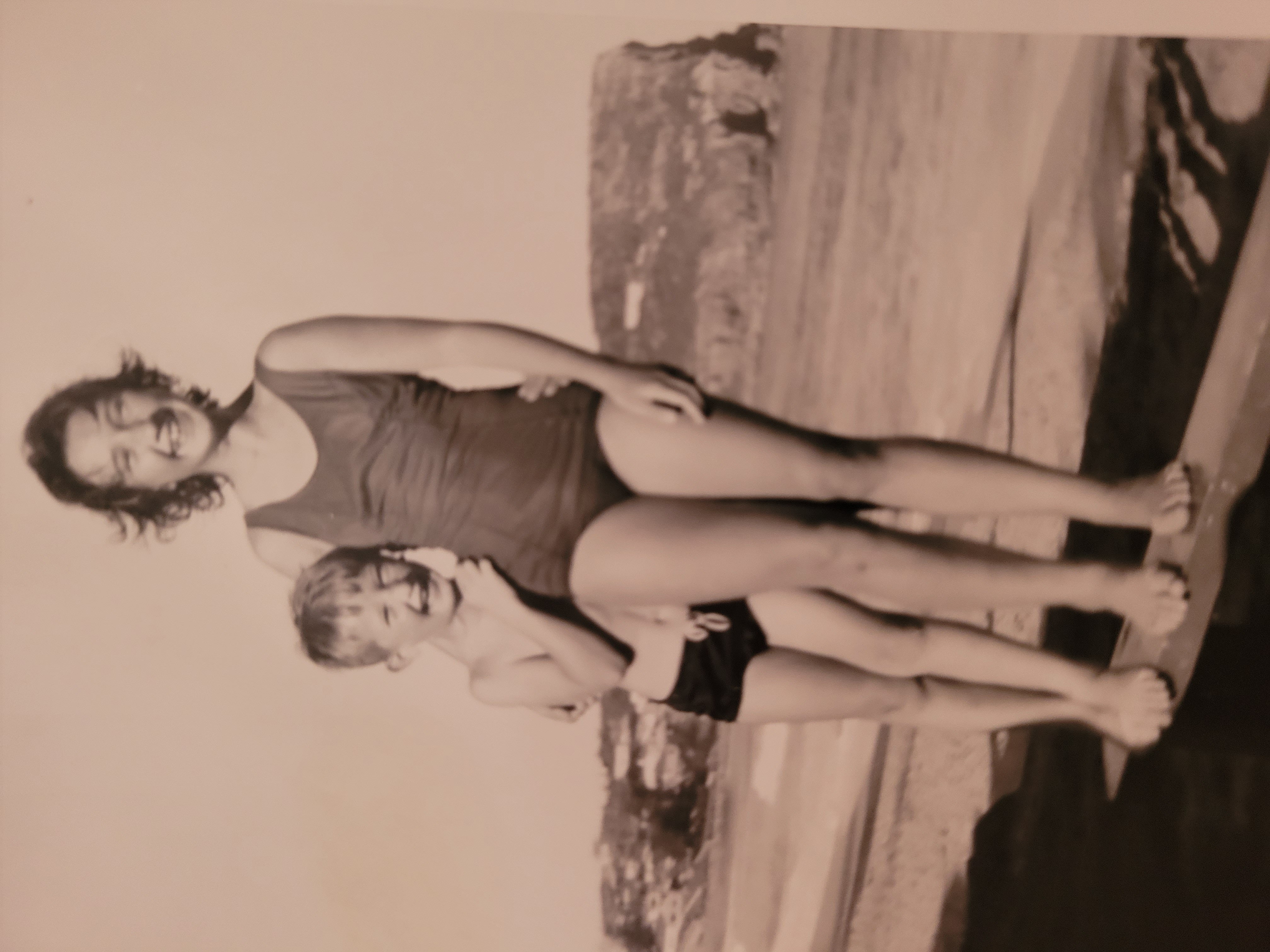
Sue and brother Kent at Avalon Beach pool aged 8 and 3
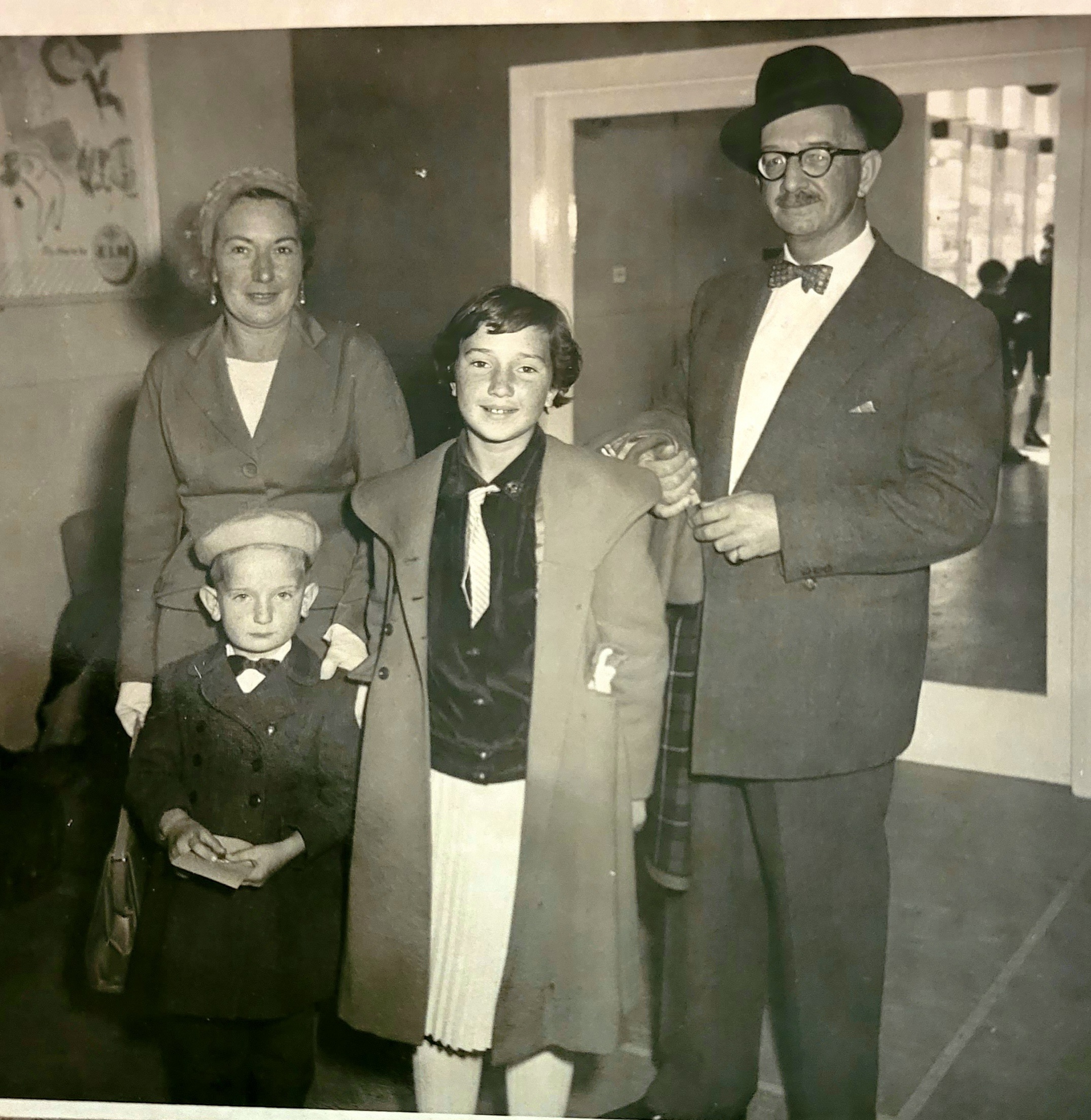
Sue: This photo is Dad, Mum, my brother Jonathon Kent, always known as Kent, and me at Mascot Airport. Dad is flying to Germany to meet with Lew. They formed a partnership to import Ballgum Machines. Each ballgum was 1d.
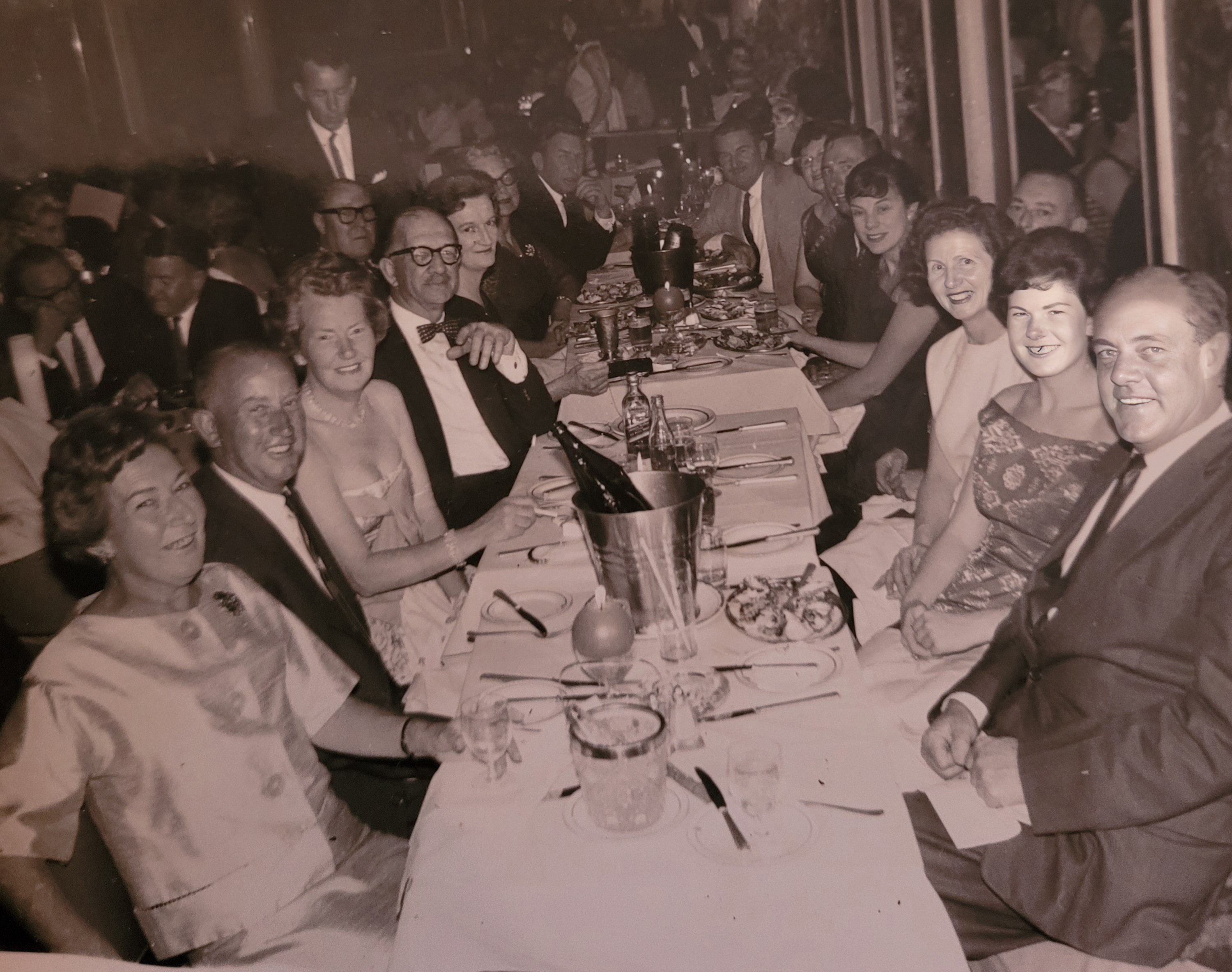
Sue: At Chequer's for Winnie's Opening Night. My Mum is front left (looking at the photo) and Dad is four seats back with a bow tie and glasses.
''Her and Lew had to leave Australia and then would come back in again.
''Winnie lived at Whale Beach when she returned.
The next time she came back she lived at Palm Beach, at a place near the pool.
This house had a great big deck. I used to go over there – she was scared of the waves – so mum would go over there and start opening mail and do whatever she had to do. Winnie would want to go in the surf, if it was low tide, and there were only little waves.
She would go into the bathroom to put her togs on - and take half an hour! – I was a kid and I just wanted to jump in the surf. I said ‘why does it take so long for her to put her togs on?’
She had a wig, obviously – no one ever saw her real hair – so she had to get that all done up and then, and this used to amaze me, she would come out covered in sunscreen – I didn’t know she could burn. When you have been a kid on Avalon Beach every day of your life until you have dark olive skin, you don’t realise that anyone, with any skin type, can burn - I’d never thought about that before.
I asked her and she said ‘oh you know darling, I burn’
And then I’d walk her across the road and jump in the little waves. She loved being in the water but she was scared of the waves.
Lew would be lying out on the deck in a chair, with very white skin, and I’d say ‘you are going to burn there’.
He’d say, ‘no, I take these little pink pills, I won’t burn.’
Well of course he did.
These are the things I remember – these little things.
I was over there most weekends to take her for a swim if the water was right, and she loved that.
Mum, who would today have been termed a Personal Assistant not just a Secretary, did a lot – a lot of it was for Lew. There always had to be a bottle of scotch in the dressing room for him – mum had to arrange that this was right and that was right – for Lew! He wasn’t the entertainer but he had to have all this stuff that mum used to tear her hair out meeting. I think a lot was put on mums’ shoulders that people didn’t see.
She would only have one meal a day and that was a steak cooked in a vertical grill, and then she would go off and do her performance for that night.
I have sent you the publicity photo we used after she lost weight – we had boxes and boxes of stuff we’d send out all the time.
I also have a little postcard she wrote to mum from Trinidad at one stage
She returned there just prior to moving into her flat at Narrabeen.
She always wanted to live here on the beaches, she never wanted to live anywhere else. She sent this when we were living at Mona Vale on Pittwater.''
Winnie made headlines in the 1960s with her dieting, slimming from 16 to 12 stone (102 to 76 kg), using what would today be called a protein diet.
Boogie Queen coming back
By BILL STRUTTOIS, of our London staff
Last time she visited Australia two-and-a-half years ago, pop pianist Winifred Atwell loved it so much she overstayed. Here for seven months, she stayed 14.
AFTER 14 months the dusky idol of boogie didn't have enough of Australia.
Early next month, with her honkytonk piano and a grin almost as wide as its keyboard, she will be back for a six-month tour which this time takes in all States except, as yet, Tasmania.
Winifred Atwell's home, in a well-to-do area of North London, brims with Australian souvenirs.
In the lounge a picture of Winnie beaming upon a cuddly koala has pride of place. Boomerangs (ladies' size, tourist-style, highly decorated) line the dining-room. A sheepskin rug, the size of a small dance floor, covers the parquet.
It is the memories of all the friends she made, of the heat, the life and cosmopolitanism of the cities, of the beach house she took at Bilgola, N.S.W., and the £100,000 success of her last tour which are all drawing her back.
"You know, it's a terrible thing for a West Indian to confess - I can't swim," Winnie told me. "But that didn't prevent me from enjoying your beaches, even though I was caught by a dumper the first day.
"My husband, Lew, and I looked after ourselves in our beach home. I did the cooking and Lew had to do all the washing-up.
"Laugh-I nearly died. You see, in my £40,000 hand-insurance contract, it says that I mustn't, on any account, do the washing-up,"
Winifred almost starved in London before she turned to pop piano playing. Her ambition was to be a concert pianist.
Her first engagement on the stage -a casual £15 job in a small variety show-was not a success, but it put her in touch with Bernard Delfont, the impresario who showed her how to build up her piano-playing act.
Then a gramophone company hired her to record "The Black and White Rag."
They didn't like it much, and an executive said: "It ought to be played on one of those old tinny pyannas - you know, bar-room style."
That was how her famous Other Piano was born.
The company found it for her in a junk shop. It was about seventy years old and cost £2/10/-.
But "Black and White Rag,' recorded on the Other Piano, made her famous within a week.
Now her recordings and appearances have built the plump and jolly girl from Trinidad into the Queen of Boogie.
BRANSDISHING one of the souvenir boomerangs she brought home from her last Australian tour. Winifred Attwell tells of her plans for her return visit early next month. Her wet-barbered poodle is almost indistinguishable, from an-other Australian souvenir -a huge white sheepskin rug which almost covers the lounge-room floor of her London home. Pictures by Alec Murray. Boogie Queen coming back (1958, July 9). The Australian Women's Weekly (1933 - 1982), p. 3. Retrieved from http://nla.gov.au/nla.news-article51940951
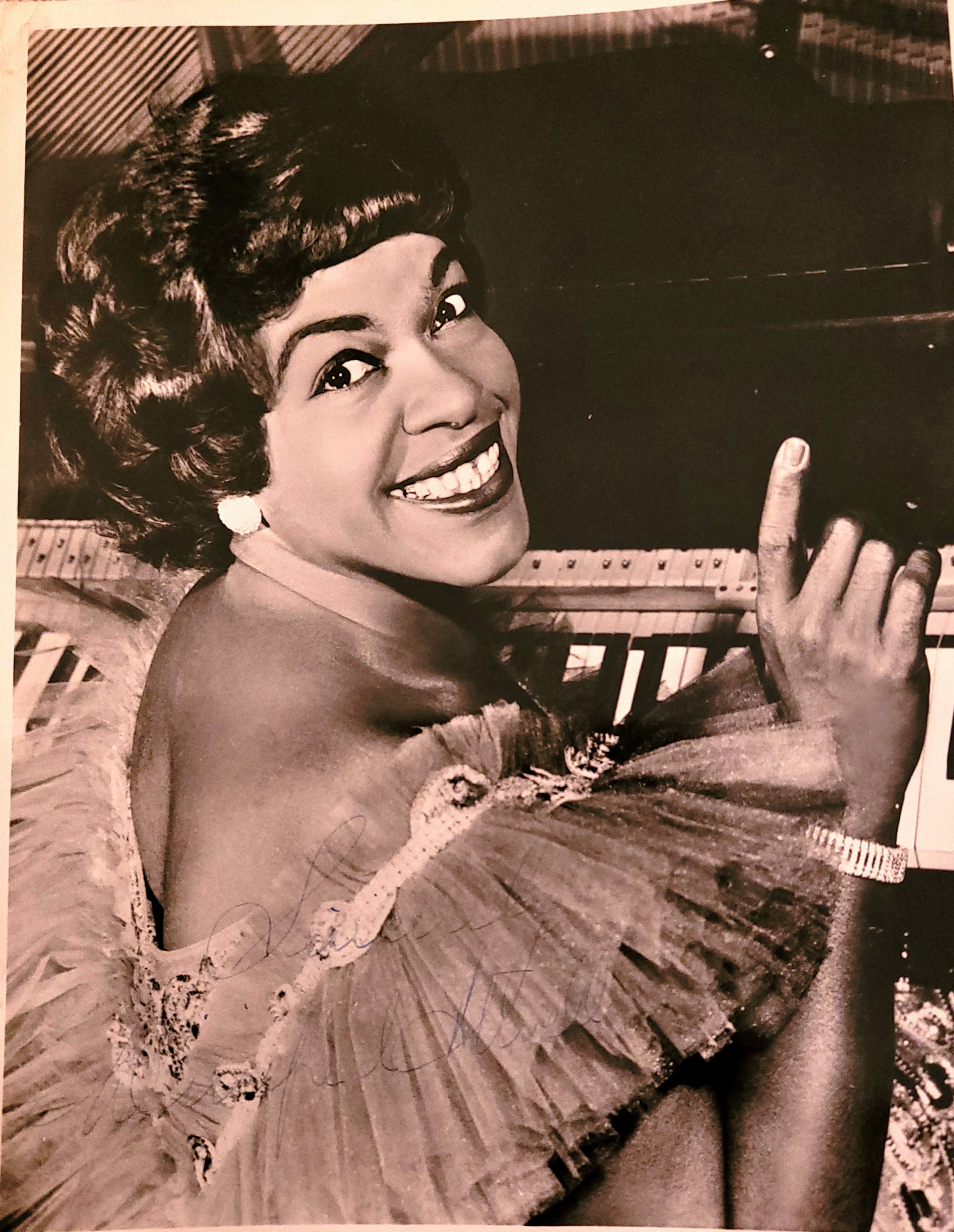
Winifreds' Publicity photo Sue's mum would send out
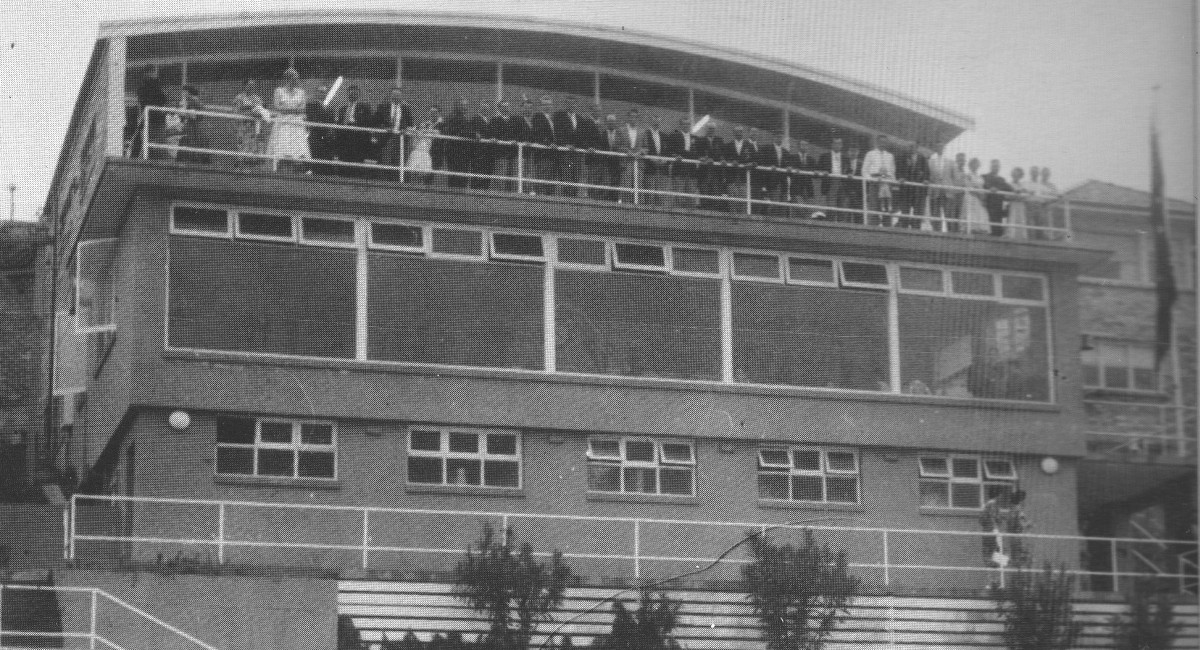
In 1962 the Moby Dick Club officially opened and in the ensuing years, the Club attracted strong membership with people travelling from all over Sydney to enjoy the facilities, the restaurant, regular floorshows with popular artists and musicians, and the drawcard of poker machines. By 1966 the mortgage was paid off and all the Club’s debts were cleared. Photo: WBSLSC archives
Winnie toured Australia many times and made Australian guitarist, Jimmy Doyle, her musical director in the 1960s. In 1962, she made a nationwide tour of Britain, with "The Winifred Atwell Show", accompanied by the Cy Bevan Group, who were with her then current radio series "Pianorama". From Monday, 17 September 1962, for one week only, she gave twice-nightly performances at the Brighton Hippodrome. Also appearing with her on the bill was Ronnie Carroll, a radio and television recording star.
Atwell was also a skilled interpreter of classical music. On 1 and 2 December 1954, at London's Kingsway Hall, with the London Philharmonic Orchestra conducted by Stanford Robinson, she made one of the first stereo classical recordings in the UK of a major repertoire work, the Piano Concerto in A minor, Op. 16, by Grieg. The two-channel version, engineered by Decca's Roy Wallace, appears not to have been released, but a transfer of the Decca LP (mono) LF1206 has been produced and issued by Pristine Audio as an available download. Another Decca recording by Atwell is George Gershwin's Rhapsody in Blue with Ted Heath's band, which contained an arrangement in the Glenn Miller style of the slow section.
In 1969, she was awarded Trinidad and Tobago's national award, the Gold Hummingbird Medal, for her achievements in music.
Sue recalled:
''Winnie gave me all her classical library – I went to the Sydney Conservatory – as she had decided she wasn’t going to be playing her classical music library any more.
Her bible was the Hanon Exercises, and that has her signature on the front. I always remember her saying to me ‘this is your bible, this is what you need to do – these exercises, every single day’.
And that’s what she did – her Hanon exercises were her got to day in day out. I was 9 or 10 at the time.
So that was a thing with here whenever she came over she would listen to me playing and see what I was up to. She would give me insights into what she was doing. That was fine but if I’d been a bit older I probably would have taken it in a bit more.
Her entire classical music library which is now being used by my Grandson.''
While enjoying the affection of the public, Winnie was nevertheless keenly aware of prejudice and injustice and was outspoken about racism in Australia. She spoke out against conditions endured by Aboriginal Australians, which made headlines during an outback tour of the country in 1962. Dismissing racism as a factor in her own life, she said she felt she was "spoiled very much by the public".
In 1961, Sir Robert Menzies, Australia’s then longest serving Prime Minister, defined the difference between apartheid and his ‘White Australia’ policy. A policy which, at his own admission, kept most ‘coloured immigrants out of the country’. Apartheid he said, ‘is a discriminatory policy in respect of people already resident’ whereas, the ‘White Australia’ policy was ‘discrimination in the admission of persons for permanent residence.’
At the same time, during a long eighteen month tour of Australasia, and despite the attitudes of the Australian government, which were overt racial discrimination, Winnie realised that she wanted to live permanently in Australia. It was during that long tour, however, that she started to notice how badly aborigines were being treated.
At a concert in Moree in New South Wales she saw that they had been forced to sit apart from white listeners on hard wooden benches. The Manchester Guardian also reported that in Bowen in North Queensland, ‘aboriginals had been refused admittance to the theatre when she appeared. At her request the management had finally left the doors of the theatre open so that the aboriginals could watch and listen from outside.’
Local papers denied the accusations printed overseas, apart from the Tribune, the official newspaper of the Communist Party of Australia:
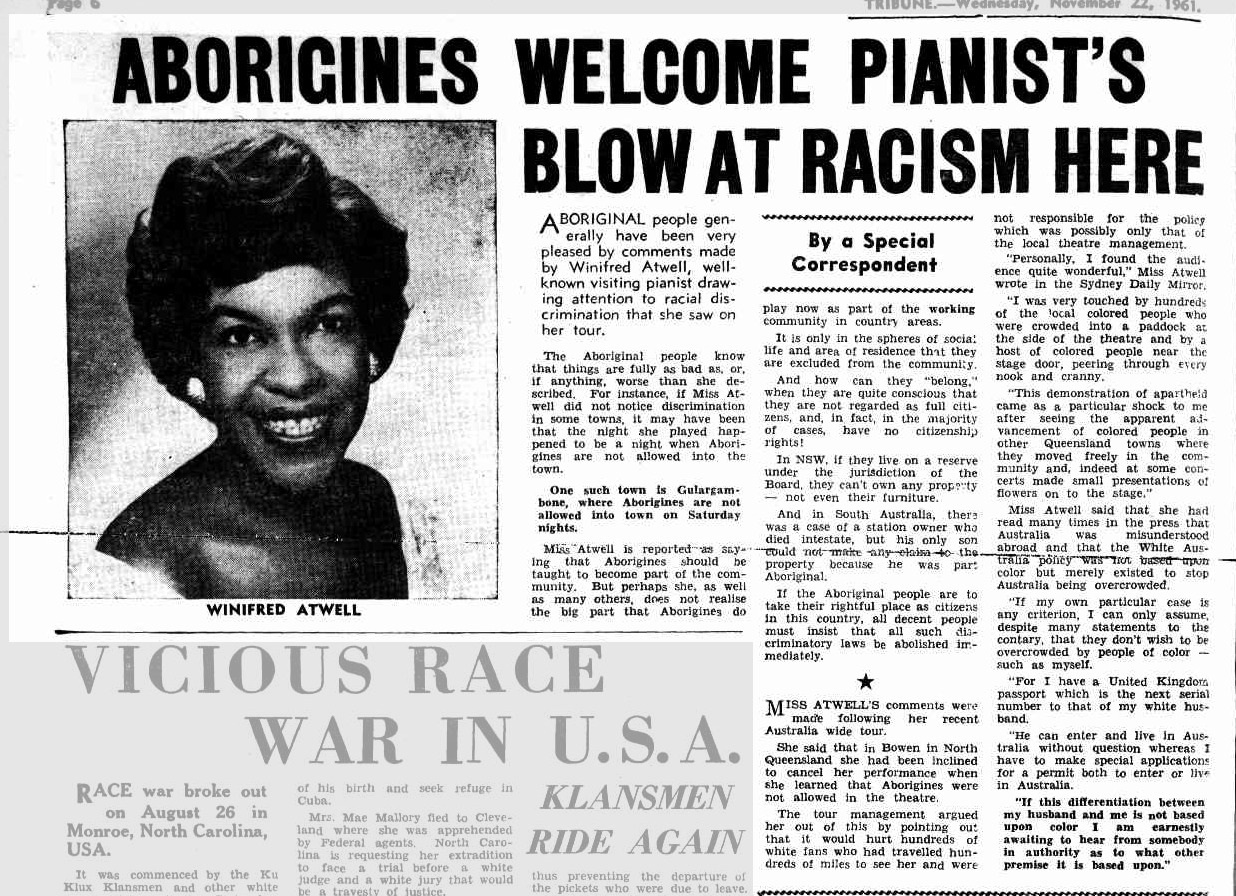
ABORIGINES WELCOME PIANIST'S BLOW AT RACISM HERE (1961, November 22). Tribune (Sydney, NSW : 1939 - 1991), p. 6. Retrieved from http://nla.gov.au/nla.news-article236253919
In 1957 the Liberal government relaxed restrictions on ongoing temporary visas and made non-European migrants eligible for citizenship after 15 years in the country (as opposed to five years for Europeans).
In the Migration Act 1958 the government introduced legislation that abolished the dictation test as part of a simpler permit migration system. Prior to this, under the Immigration Act, migrants who entered Australia between 1901 and 1958 could be asked to take a dictation test. To pass the test, they needed to write 50 words in any European language, as dictated by an immigration officer. After 1905, the officer could choose any language at all and reports state a language an applying migrant was unable to speak or write was often that chosen.
A migration review in 1966 led to the abolition of the White Australia policy. Under new laws – introduced by the Holt government through a ministerial decree and given bipartisan support in parliament – all potential migrants were subject to the same rules and restrictions with regard to acquiring visas, and were eligible to become Australian citizens after the same waiting period of five years.
Those who wanted to be migrants to Australia were to be selected for their skills and ability to contribute to Australian society, rather than their race or national affiliation.
In 1970 Atwell was at last granted permission to stay in the country that she loved. The UK's Sunday Mirror reported:
‘Pianist Winifred Atwell has been given permission to settle down in Australia as an immigrant. She has been told this officially in spite of the country’s “White Australia” policy. An Australian immigration official said yesterday that she had been granted residence because she was “of good character and had special qualifications.” The Immigration Minister Mr Phillip Lynch said: “We will not stand in the way of an international artist of such repute.”‘
Winnies' popularity in Australia led to her settling in Narrabeen in 1970. She and Lew had bought an apartment on the beachfront in the Marquesa building, a then brand new apartment complex, as a base for her worldwide performance commitments. During this time she maintained her connection to Whale Beach, was a member of the Moby Dick Surf Club, where she performed regularly in support of the surf club.
Winnie, a devout Catholic, also played at 'her local church' on Sundays; St Josephs' in Narrabeen.
Miss Atwell, now an Australian citizen, has returned to America to sell her house there, and move furniture and her grand piano to a home unit she has bought at Narrabeen, N.S.W. REDUCING THE IMAGE (1972, June 21). The Australian Women's Weekly (1933 - 1982), p. 10. Retrieved from http://nla.gov.au/nla.news-article51191071
Ms Atwell often returned to her native Trinidad and, on one occasion, she bought a house in Saint Augustine, which she adored and later renamed ‘Winvilla’. It was later turned into the Pan Pipers Music School by one of her students, Louise McIntosh.
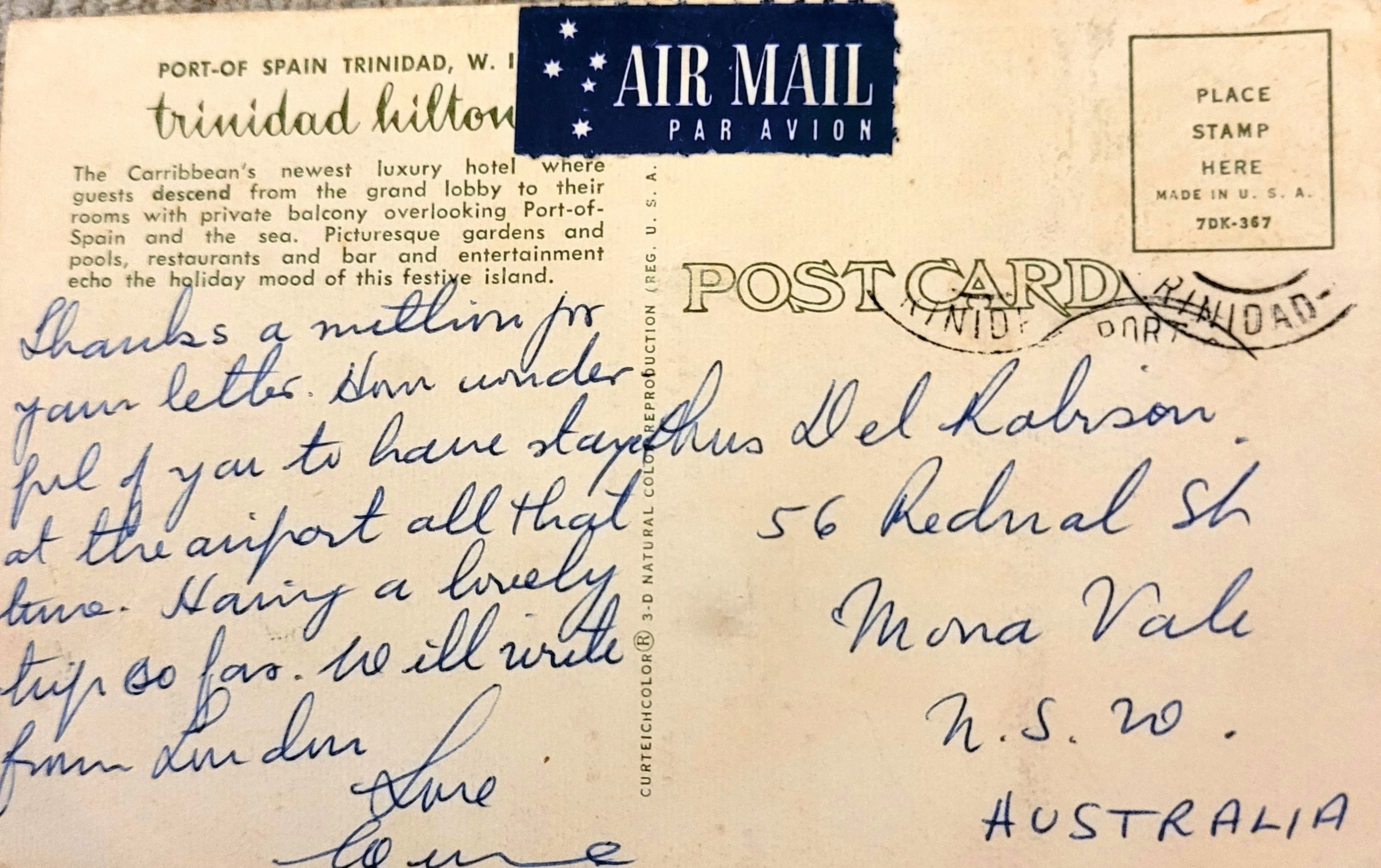
postcard from Trinidad
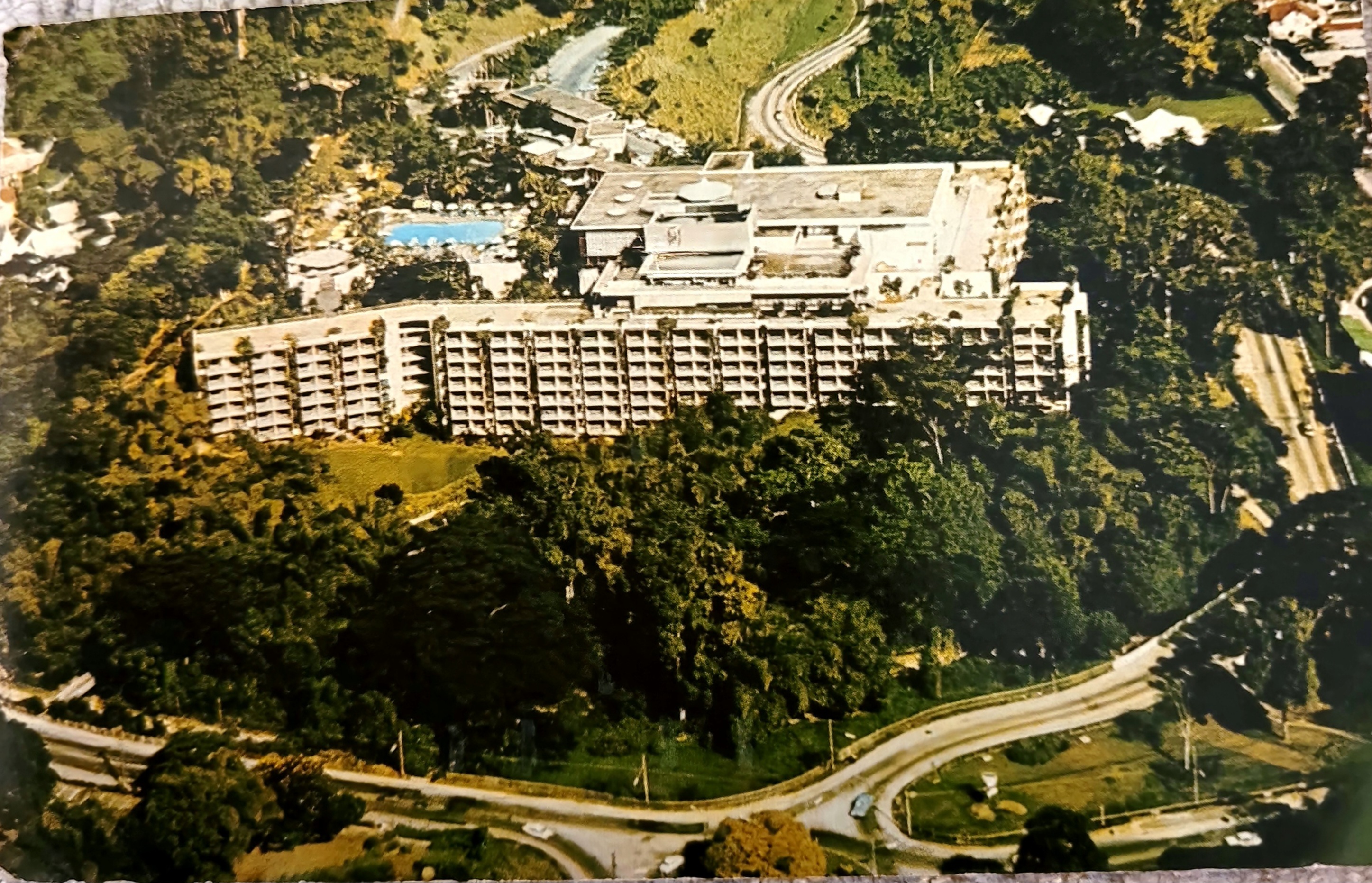
Sue: Winnie played at my wedding reception at the Newport Motor Yacht Club.''
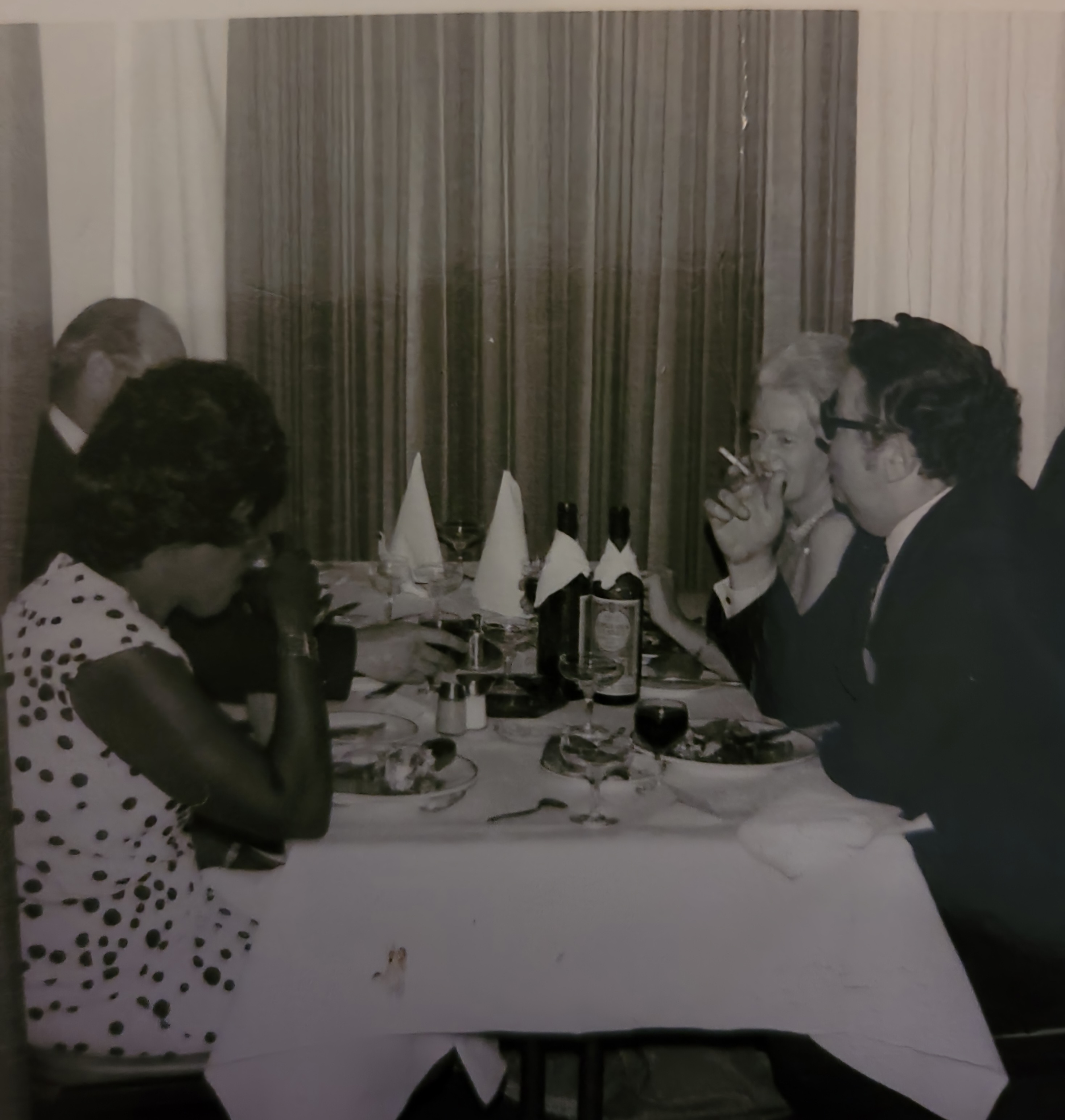
Winnie and Lew at my wedding 1973
In 1977 she lost Lew, who died suddenly on December 28 1977 while they were in Hong Kong.
In 1978, she appeared on Australian TV's This Is Your Life. At the end of the show, she played a few bars of "Black and White Rag" using her "other" piano, which had been in retirement for many years.
The following year she had a stroke and was taken, initially, to Mona Vale Hospital:
Atwell has stroke
SYDNEY: Entertainer Winifred Atwell was recovering in St Luke's Hospital, Darlinghurst, yesterday from a stroke.
Hospital Matron Ann York said the pianist was doing well.
"She was admitted last Friday, and we don't know when she will be allowed to go home", Matron York said.
Miss Atwell was been an entertainer and pianist for over 30 years. She lives at Narrabeen, a northern beachside suburb. Atwell has stroke (1979, September 19). The Canberra Times (ACT : 1926 - 1995), p. 28. Retrieved from http://nla.gov.au/nla.news-article110598721
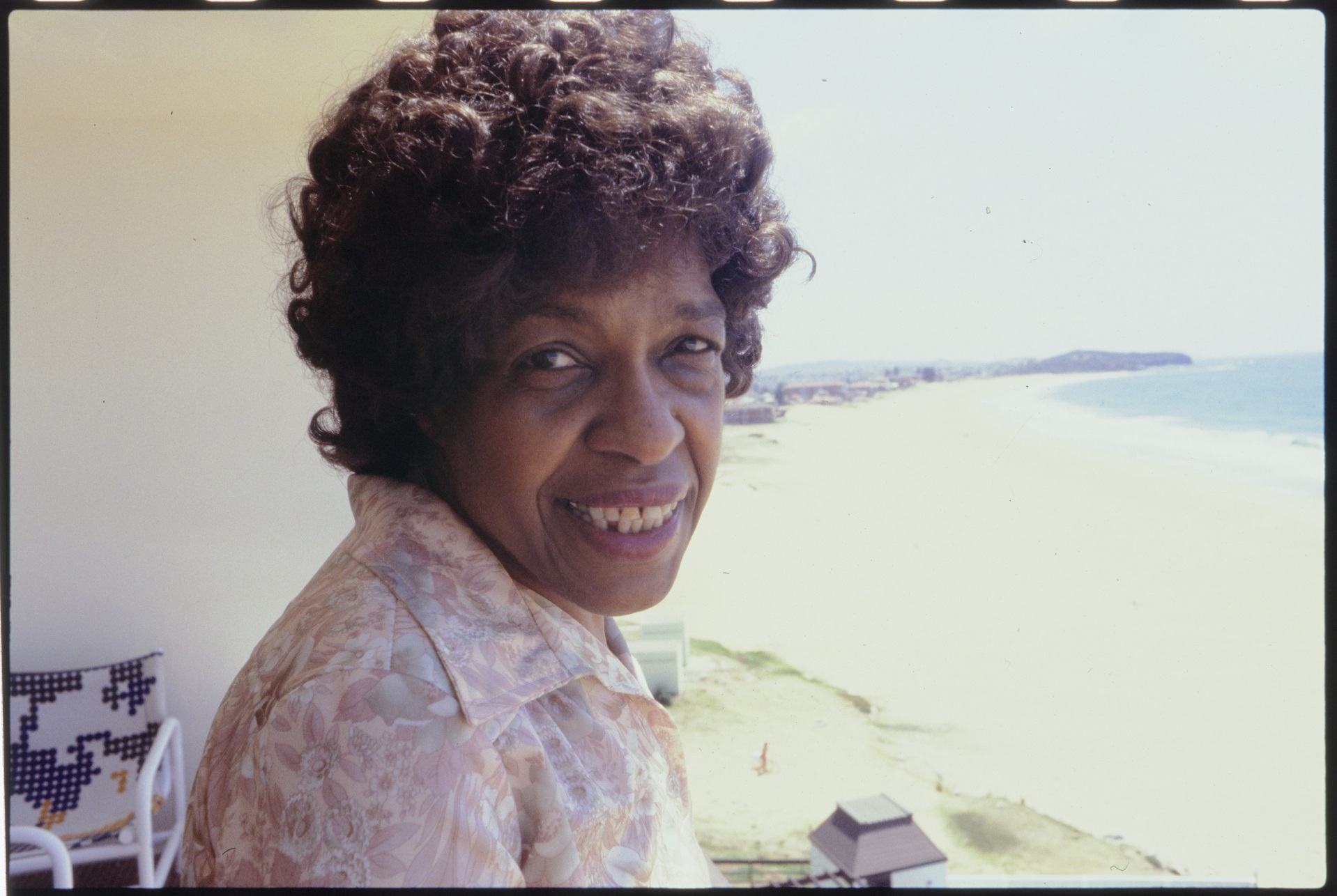
Winifred Atwell. The smile is back, 14 January 1980 / photographs by Bob Fenney (at Narrabeen on the front balcony of her home, still looking quite ill). The whole album from this photo shoot is held by the State Library of NSW. This example is Item: SLNSW_FL18931884 - Bob was a news photographer for Women's Day, and other publications. He got free of all that and went north and went sailing.
Marquesa Buildings, Monday May 13, 2024. Photos; A J Guesdon
WINIFRED ATWELL
Calling the tune again after a stroke
Almost a year ago one of Australia's most popular piano players fell victim to a stroke, but Winifred Atwell's determination and tenacity have ensured that her climb back to the top, to perform again for all her fans, succeeds
"Eight months ago I couldn't do this," says Winifred Atwell, taking a seat behind her grand piano and scattering the fingers of both hands up and down the keyboard. The strains are unmistakable.
In her stylish living-room in Sydney's Narrabeen, she belts out the "Black and White Rag," an infectiously fast and happy number that virtually became her theme song and gave her world fame in the '50s.
Up close, the red varnished nails click softly on the notes that are struck with amazing speed and assurance.
The whole exercise, with Winnie honouring The Weekly as she would the audience at a concert hall, is joyful testimony to her complete recovery from a stroke. Luckily, Winnie Atwell was at home and had a visitor — her old friend Jenny Gross - when she "did not feel well" last September. She cannot remember acute pain anywhere; just being swamped by a strange sensation.
Jenny telephoned Jill Grant, a neighbour, who called her own doctor. Winnie went by ambulance to Mona Vale Hospital. She underwent many tests before the doctors provided the result: "a stroke."
The news to anyone is abhorrent. To a pianist of Winnie Atwell's calibre, requiring first-class co-ordination and reflexes, it couldn't have been worse.
From Mona Vale she was transferred to St Luke's Hospital, Darlinghurst, for the fight back — concentrated physiotherapy combined with her own tenacity and determination.
Winsome Winnie, her genuine smile and bright eyes as much of her charm as her piano playing, is quietly reflective.
"I wasn't sad, annoyed, angry or frustrated," she said. "I've always been a placid person and learned at my age not to fight things but to take them as they come. I was grateful to the doctor who was so honest in telling me what I'd suffered, yet also so reassuring. 'Don't worry,' he said. 'You'll recover completely.' I believed him.
"It meant months of physiotherapy and exercises that included squatting and exaggerated arm movements. It was quite an achievement the day I could wave both hands again. My speech improved quickly. Friends told me it was slurred for a while after the stroke and they couldn't understand what I was saying.
"The stroke affected my left side, my left hand, arm and leg. For quite some time my legs would go to jelly and I had quite a few falls trying to walk. Because walking was difficult I rode an exercise bike every day and I still do three kilometres on it each morning.
"I kept up my daily piano practice, 30 exercises in a book of scales. My left hand, which gives me my big, bass rolls, wouldn't function for some time."
Winnie's hospital room, for the duration of her stay, was like a florist's shop. Mail was not handed to her daily — it was dumped by the load. It came from all over Australia. It came from overseas. Sometimes it had a hospital address. In many cases it was simply addressed: "Winifred Atwell — near Sydney" or "Miss W. Atwell, Beachfront Flat, 13 miles from Sydney" or "Winnie Atwell, Narabine, Australia."
Her handsome face lights up. "I have so much to be thankful for, from the efficiency of Australia Post to the kindness of so many people. I had to take out an ad in a paper to thank them. I had no hope of answering the mail personally.
LEFT: Daily rides on an exercise bike are part of Winnie's recovery plan. RIGHT: Delighted to be playing again.
"The stroke has made me very humble and, in fact, I think I am a better person for it. I always used to boast about my good health. Never again.
"It has made me look back on my life and assess things. When I was able to, I wrote and apologized for something I had done 21 years ago. It had often caused me sleepless nights. I wrote to Bernie (not Lord) Delfont in London apologizing for leaving him when he was my agent, I received a quick reply from him . . . 'My dear Winnie, how good of you to write, I did appreciate your letter . . .' and it was full of nice sentiments."
The bulk of the sentiment and good wishes came from within Australia, the country she decided to make her home after a tour in 1955.
Formerly of Trinidad, the daughter of a pharmacist, Frederick Atwell, and Sarah Atwell, and a former pharmacist herself. Winnie started taking piano lessons at the age of five and regularly played the organ at church on Sundays from the age of eight. To her father's delight and her mother's dismay, she went to England in the '40s to try her luck on stage. In 1947 she became a fully-fledged professional.
"There are not too many of my vintage around now," she says, laughing and not admitting that she is in her late 60s. "Max Bygraves, Vera Lynn and Liberace . . ." and many of them featured in her "This Is Your Life" programme in 1978 which went to air a short time after her husband-manager, Lew Levisohn died suddenly in Hong Kong.
Her agent, Brian Fogarty says: "They lived for each other. Winnie slowed down a lot after Lew died."
In the programme, Harry Secombe sent her a message: "Dear Winnie, I wish I could be there to give you a big kiss. Do you remember Guy Fawkes night in '56 when the Royal Command Performance at the Palladium was suddenly cancelled? Liberace was in tears and we all went around to your place and got drunk." Winnie giggles over the telegram.
Australia had a love affair with Winifred Atwell the minute the pianist arrived in 1955. In her first 14-week tour, every seat was booked out. She and her husband were in tears when they left Sydney with Winnie remonstrating to him: "We really shouldn't be acting like this. It looks as if we're homeless."
Home, then, was London, in between branching out to concert tours all over the world. She returned to Sydney in 1958 to give the best of her farewell performances which were still going strong 22 years later.
The pliable Winnie sold out in the pubs with as much ease as she did the Tivoli, pounding her "Black and White Rag," "Poor People of Paris," "Jubilee Rag" and "Coronation Rag" and "Britannia Rag," which she wrote especially for the Queen's coronation in 1953. She adapted to the times and these days includes the theme from "Rocky," "Don't Cry for Me Argentina" and Scott
Joplin music in her repertoire. Her love of Australia was such that she and her husband lived here from 1959, first at Bilgola, then at Palm Beach and Whale Beach on Sydney's green and shaded northern peninsula. These days she lives at Narrabeen with the waves only a dull thud away.
In between, she took her talent around the world and around Australia from clubs and pubs at Charters Towers, western Queensland, Alice Springs, outback NSW, and from Albany to Tasmania, using pianos that often slipped a disc, shed a pedal or were inclined to forward rolls, mostly toward the front row of the audience!
Her 33 years as a celebrity artist has left her comfortably off, she says, but she still plays because she loves it so much. Back on top again, she now has a club circuit to do on NSW's central coast followed by bookings at Albury and Canberra.
Winnie has many Royal Command performances under her fingertips and the recognition she thinks of most fondly is being asked to play privately for the Queen at Luton Hoo, which is one of the proudest stately homes in England.
"How extremely fortunate I have been," she says. "My life and career have been filled with lovely moments and lovely people.
"I do have one regret — that my husband and I had no children. I think families are tremendously important. I have a second regret — in not keeping up my practice of classical music. It has always been a major love.
"But I keep up music in other aspects ..." and with style she moves to her piano and tranquilly plays a Roman Catholic hymn, "Soul of My Saviour." "It's my favourite," she says.
"I played the organ in church as a child and am a great believer in prayer which has helped sustain and uplift me during my illness. I start every morning reading the chapter for the day from my book, 'Imitation of Christ'."
Getting back on top again has been no easy feat but Winnie achieved it and to those who suffer from strokes she advises, "Rehabilitation today is so marvellous. Don't despair and think positive. And keep on looking up." — JILL BOWEN WINIFRED ATWELL (1980, August 6). The Australian Women's Weekly (1933 - 1982), p. 4. Retrieved from http://nla.gov.au/nla.news-article51601995
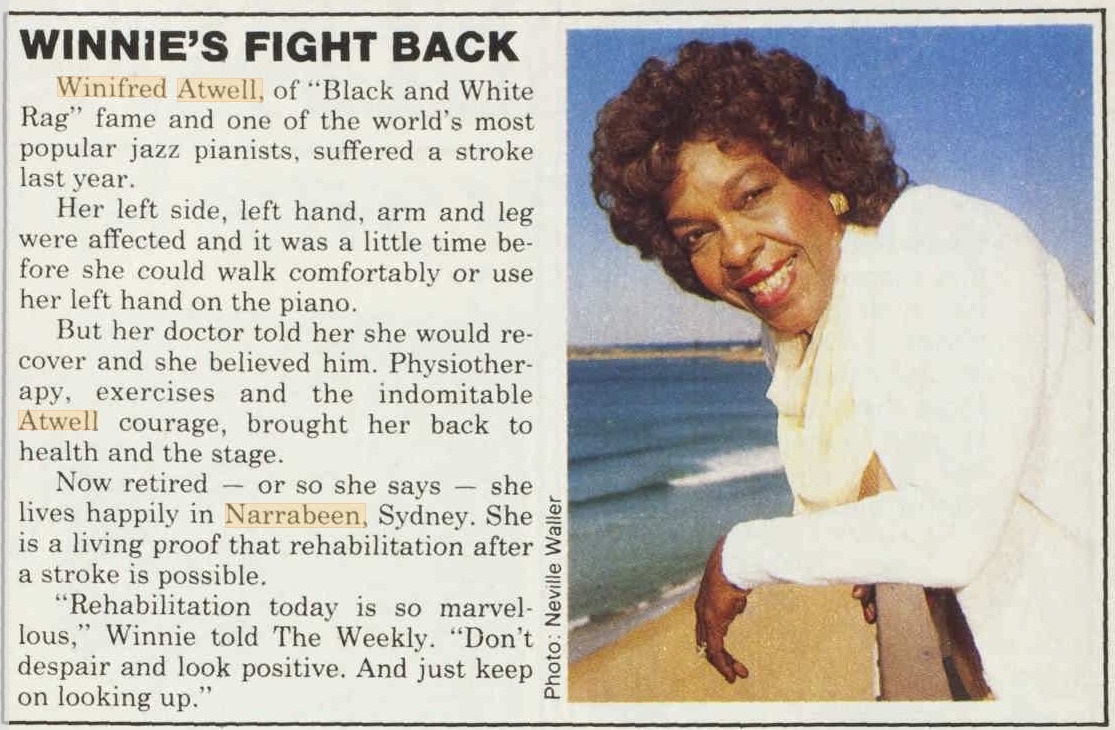
October 29, 1980 - Canberra Times - looking better here 10 months on
Ten years after being given permission to live here Winnie gained her Australian citizenship.
Sue explained during a chat last week:
''Winnie eventually got her citizenship for Australia – dad had been helping her for years to get this and then it finally came through.''
The Canberra Times, and later, the Australian Womens Weekly ran - in the Times report you can see her home block of flats at Narrabeen in the background:
Winifred Atwell to be citizen
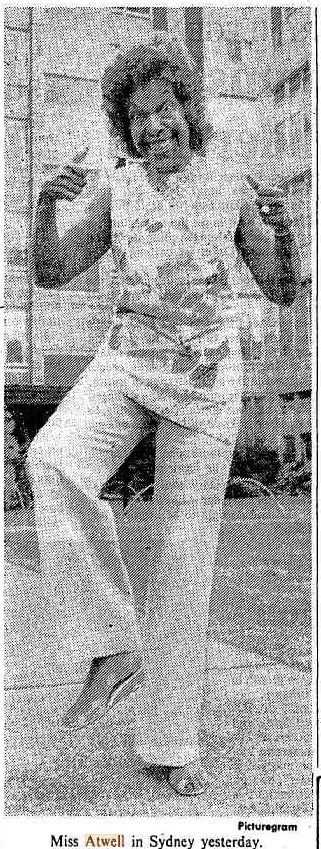
Photo: Miss Atwell in Sydney yesterday.
SYDNEY: Winifred Atwell will become an Australian citizen at a ceremony at the Commonwealth Government Centre, Sydney, this morning.
Miss Atwell, originally from Trinidad, first toured Sydney and Melbourne theatres in 1955. She returned in 1958, then did a tour through the outback in '61 and '62. After that she came back almost every year until 1970, when she and her husband, Mr Lew Levison, bought an apartment at Narrabeen and decided to settle in Australia permanently.
After suffering a stroke in 1979, she retired from touring in September last year, and now plays the piano only "occasionally". Winifred Atwell to be citizen (1981, November 13). The Canberra Times (ACT : 1926 - 1995), p. 7. Retrieved from http://nla.gov.au/nla.news-article126857996
After 25 years living in Sydney Winifred has been naturalized.
Winifred Atwell, now a dinky-di Aussie
Her only public performances these days are in a church but she's still committed to music and her adopted home
Winifred Atwell has tied her hands behind her back when it comes to public performances, but she has other ideas about records.
"I'm releasing a new one next year (1982) called 'Pop Go The Classics', she said and she flashed those remarkable ebony hands in front of her face. It was a gesture to her small audience of two, signal-ling that, at 71, she is still Australia's number one honky-tonk pianist.
Her fingernails were polished in red lacquer and she wore a dazzling diamond on her left hand. Her husband Lew Levisohn had "advised" her to invest in the diamond when they were in London, many years ago.
It is the absence of Lew from her life now that makes each day harder for her to bear. When Lew died during one of Winnie's Asian concert tours in 1977 she lost not just her husband, but manager, great friend and personal adviser.
She also lost her direction in life. Without Lew she really did not know which way to turn.
Winnie decided to retire but just a year later she had a severe stroke. When she regained her health she decided to live in Trinidad where she had grown up. She and Lew had no children, so Winnie looked to her remaining family in Trinidad for a new life. But things did not work out there.
"I found the climate unbearable — it was too hot all year," she said, "and I don't like living in a place where you don't get value for money. I found Trini-dad very expensive."
She moved back to Australia and decided it really was home for her, even though she had not left a lot of friends behind.
"I love the amount of space in Australia and I think the view from my apartment in Narrabeen, Sydney, is one of the most beautiful in the world," she said.
It is. Winnie looks straight out to the Pacific where, from time to time, groups of yachts skip across the water and where, on the horizon, she can see the tankers and cargo ships that leave Sydney for northern waters. Her sitting-room is dominated by a Steinway grand piano on which she practises each morning for two hours. Practice over, her fingers will fly up and down the keyboard as she pounds out all her famous old favourite tunes.
Her only "public" performances these days are when she plays the organ at the local Catholic Church, St Joseph's, although she will always play for friends.
To reaffirm her decision to come back to Australia she decided to take out citizenship — an idea she had entertained for years, but done nothing about.
So, after 25 years living in Sydney, she attended a simple ceremony last month and collected her Australian naturalization certificate.
Then she crossed the road to the Wentworth Hotel to celebrate with friends. With a glass of champagne at her elbow, she tinkled the piano and played the song by which she is best remembered, "Black and White Rag".
Indeed Australia was good to Winnie. Although to younger Australians the name Winifred Atwell conjures up only an image of ragtime piano music, to their parents she was the "Queen of the keyboard" and at times she pulled in as much as $5000 for a week of performances.
In her pretty flat she proudly shows us her new certificate.
"I've always been faithful to Australians," she says, "so it was time to become one officially."
She clasps her hands tightly together when she talks about Lew, and her voice becomes softer and slower.
"When he was alive we used to walk on the beach together, but I don't do that now. He was the guide in my life."
She gathered up a book of crossword puzzles, smiled and said: "I'm terrific at them. And I've got a lot of practice to do, some housework and friends to see. I'm enjoying my life today. Of course if you took away my piano, that would be a different matter." — SUSAN OWENS Winifred Atwell, now a dinky~di Aussie (1982, January 13). The Australian Women's Weekly (1933 - 1982), p. 13. Retrieved from http://nla.gov.au/nla.news-article44524592
Winnie was known as a generous lady, always donated her services in a charity concert on Sundays, the proceeds going to orphanages and needy children, among many other good deeds - including supporting local charities, the Whale Beach SLSC, and other community volunteer organisations.
Though a dynamic stage personality, Atwell was modest, shy and soft-spoken. Eloquent and intellectual, she was well read and keenly interested in and informed about issues and current events. Voracious in her reading habits and a devotee of crosswords, she confessed to an inordinate love of mangoes, a dislike of new shoes, and a keen interest in televised cricket (she backed England).
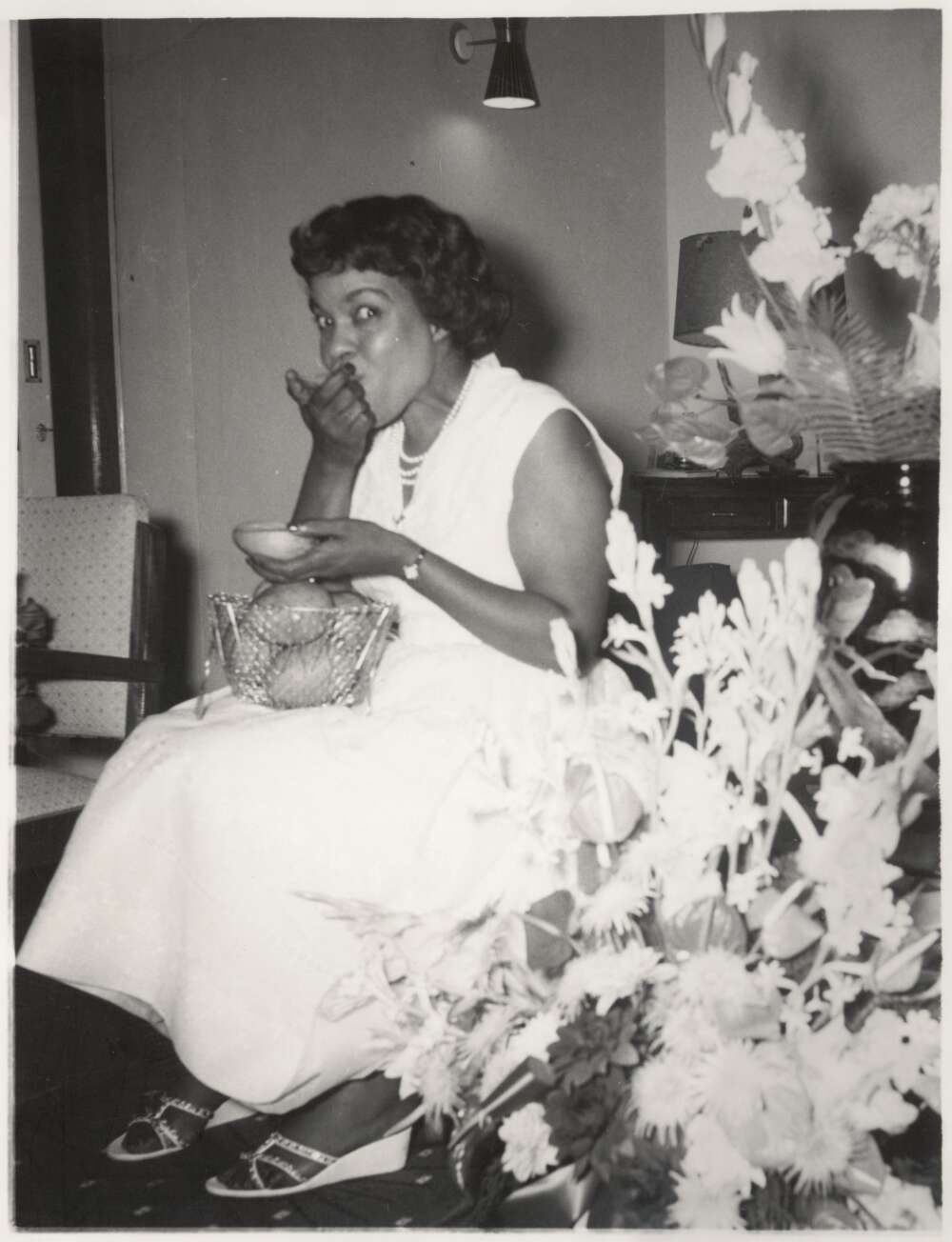
(1950-1955). Photograph of Winifred Atwell enjoying a mango [1] Retrieved from http://nla.gov.au/nla.obj-144631019
In 1981, she officially retired on The Mike Walsh Show, then Australia's highest-rating television variety programme. She categorically stated that she would retire and not return as a public performer, and that she had had an excellent career. Her last TV performance was "Choo Choo Samba", followed by a medley of "Black and White Rag" and "Twelfth Street Rag". Her only non-private performances from that point were as an organist in her parish church at Narrabeen.
In 1983, following an electrical fire that destroyed her Narrabeen home, she suffered a heart attack and died while staying with friends in Seaforth.
Winnie passed away on Monday February 28 1983, her funeral was held at St. Josephs', Narrabeen.:
Death of Winifred Atwell
SYDNEY. — Winifred Atwell, the Trinidad-born boogie-woogie pianist, who became one of Australia's top entertainers in the 1950s, died in Sydney yesterday after a heart attack.
Miss Atwell, whose Narrabeen apartment was severely damaged by fire two months ago, had been staying with friends in Seaforth.
Her career in Australia spanned 25 years, beginning in 1955 in Sydney. The pianist's age varied with the inter-views she gave. The figure on her death certificate was 69.
Winifred Atwell's hard-thumping, honky-tonk piano style earned her a reputed $2,500 a week in Britain before she came to Australia, and her version of the 'Black and White Rag' sold more than half a million records.
Though it is years since she was a star, it is still heard as background music to the popular ABC television show, "Pot Black".
She was born in Port of Spain, studied pharmacy, but also set her heart on classical piano.
Apparently the music critics were not as kind as she would have liked, and she began her boogie career playing for servicemen at an air base in Trinidad.
She moved to Britain and the British loved her. Within a few years the young pianist who had been earning a few pounds a week earned 1,000 pounds a week. Her piano, purchased for a few pounds, was insured for about 12,500 pounds and her hands for 40,000 pounds. Death of Winifred Atwell (1983, March 1). The Canberra Times (ACT : 1926 - 1995), p. 3. Retrieved from http://nla.gov.au/nla.news-article116371162
Although Winnie was clearly loved and is remembered across Australia there are several here who remember her as well.
When we posted a little about Winnie on the Pittwater Online Facebook page a few weeks ago, to let Readers know what's coming up in the publication schedule, these wonderful memories, among over 100, were kindly shared:
Bruce Felton; Yes, remember her well, she moved from Flight Deck into the Marquesas
Robert Wells; I lived in Marquesas and it used to be lovely surfing at sunset in front of the building and hearing Winnie practice with her balcony doors open and the notes drifting out across the water.
Bruce Felton; yes she did, I remember it. I hung out and surfed with a group of mates in Goodwin St and also heard her piano playing while surfing.
Chris Tasik: She lived on the Top Floor... they used a Helicopter to get her piano over the balcony.
Carolyn Healy: She lived in the Marquesas. I believe she had to have her baby grand piano hauled over her 6th floor balcony to get it into her unit. Also Elton John mentioned Winifred Atwell in an interview not long ago too.
Vicki Johnson; Yes for sure and she used to play the organ at St Joseph's on Sundays.
Charles Priest; Yes lived in Narrabeen in those days. Win was one of the most famous residents
Geoff-Sharon Horsnell: Ok showing my age, my Mum was a massive Wini fan playing her records in our home. She was a huge star. Love that ragtime. https://youtu.be/EJagAMtp6AE?si=wD6CJvntQ2K-Mlqe
Nigel Morris: FWIW, I stumbled on the 2101 connection in this BBC history podcast - it covers a number of topics, but this episode includes some interviews and stories from her. https://open.spotify.com/episode/4gYtuZPrPN8bgV3hIOv10Y...
Ivory Tickler: We (Piano & Antique shop in Waterloo St) ended up with Winnie's ebonized 'honky tonk" piano. A Brinsmead overdamper, with spindle gallery up top. Sold to an antique dealer in Narrabeen circa early 80's as I recall. No idea what happened to her Grand. I know our tuner, Alan Andersen Jnr used to look after it for decades. According to my mother, I used to bounce out of my pram (early 1950's) whenever Atwell was playing on the wireless;)
Keith Nicholson: When Winifred lived at Whale Beach I used to service her Torana at what used to be BP BP Barrenjoey. When I returned the car back to who I had to wait until Winifred had finished rehearsing.. coffee and cake with Lou..being a mere callow youth, I didn't realise then I was in the presence of a great but have loved her music to this day
Bruce Charles Walters: I was a member of "Mobys" at Whale Beach for many years and her entertainement for the members and guests was absolutely fantastic.
Ken Lloyd: Legendary bass player Darcy Wright told me he played bass for Winifred for many years. He was also part of the midday show bands. There is footage of her playing on YouTube. Harold Hanlon. Darcy told me they used to spend their days at Whale Beach. I remember him telling me it was the only house on the south headland and described it as a castle and said it was the only house around at the time - it was near the surf club, where she played.
Miranda Korzy: My Grandma loved her piano playing.
Brian Friend: She played a few times at Avalon beach RSL when Jack Carter was the boss. Loved her 'Honky Tonk' music.
Ron Mosman: Proud to say Winnie and Lew were friends. She gave up touring and travelling back to London for recording (EMI Studio) after her second heart attack. When Lew dropped dead in the street in Hong Kong Winnie was devastated. Shattered. I know she pined for him for the rest of her life. He was a really nice guy. He had been a doctor, and gave up practice to be Winnie's manager. Winnie had been a pharmacist, which is how they met. I have a set of cufflinks Winnie had made, with her autograph on the box. They are little pearlshell and onyx keyboards. I prize those. Still think of Winnie often, listen to her records. Love her playing with the Blue Mink! Stunning sound which she adopted for her stage performances afterwards.
Niki Turner: Winifred Atwell was the star at Chequers Nightclub in 1960. My first show as a dancer in the ballet.
Judi Stafford-Bush: I had the greatest pleasure of driving her to rehearsals in Melbourne way back when...she was the most gracious,kind and generous entertainer I have ever met.She never demanded anything and was apologetic if she went overtime.
Vanessa Dunn: She was a lovely lady who played at Lions Carols by Candlelight at Avalon.
Maureen Player: She played at Avalon’s Carols By Candlelight when I was a kid. Beautiful lady.
Jan Pateman: She used to come into our take-away food shop opposite her apartment. When I had my son, staff wrote on the window ‘it’s a boy, 10lb7oz’. Winifred read the notice and came in crying ‘for that poor little lady’ i.e. me as I was only a small built woman. A beautiful lady.
Fiona Murphy: She was a lovely lady and her husband Lou was really nice as well. I remember her saying how much she loved living in the Marquesas, just being able to walk over to the pub for a drink. Had dinner with them a few times and attended the same parties as well. She was always happy and smiling.
Mark Hutton: I went to her show at Newcastle stadium I reckon I was about 10 it blew me away 60 years later I love that music
Wendy Fisher: She was a wonderful pianist. I saw her at the old Tivoli a very long time ago.
Leonie Gagg: Man she could make that piano sing!! To watch her fingers was amazing ❤️
Sharne Campey: Loved her!
Terry Gordon: I've Still Got A Few Of Her LPs Great Stuff.
Barry Moir: Seen her show at the Hilton hotel Melbourne when I was 16, 1963.Amazing artist.
Sara McGlynn: My ex-husband, carpet/floor covering owner, Tony Basha (rip), knew Winifred. He carpeted her unit in Narrabeen. She played for him... beautiful, talented Artist, she was.
Paul Castle: My dads' favourite
Tallaluh Vickers: Wonderful artist
Carole Harris: Remember her well, she was very much loved by everyone and a great pianist.
She left her estate to the Australian Guide Dogs for the Blind and a small amount to her goddaughter. Although a cousin of Lew Levisohn contested Atwell's will and is reported to have been granted $30,000 from her estate.
NOTICE of intended distribution of estate.—Any person having any claim upon the estate of UNA WINIFRED LEVISOHN (also known as Winifred Atwell), late of Narrabeen, in the State of New South Wales, widow, who died on 28th February, 1983, must send particulars of his claim to the executor Bruce Elwyn Edwin Davey, and James Carney, care of P. G. Truman Stocker & Scutts, Solicitors, 68 Pitt Street, Sydney, within two calendar months from publication of this notice. After that time the executors may distribute the assets of the estate, having regard only to the claims of which at the time of distribution he has notice. Probate was granted in New South Wales on 2nd August, 1983. P. G. TRUMAN STOCKER & SCUTTS, Solicitors, 68 Pitt Street, Sydney, N.S.W. 2000 (D.X. 263, Sydney). (7820) NOTICE of intended distribution of estate.—Any person having any claim upon the estate of UNA WINIFRED LEVISOHN (also (1985, March 8). Government Gazette of the State of New South Wales (Sydney, NSW : 1901 - 2001), p. 1134. Retrieved from http://nla.gov.au/nla.news-article231879517
Winnie is beside her husband, Lew Levisohn, in Northern Rivers Memorial Park, South Gundurimba in northern New South Wales, just outside Lismore.
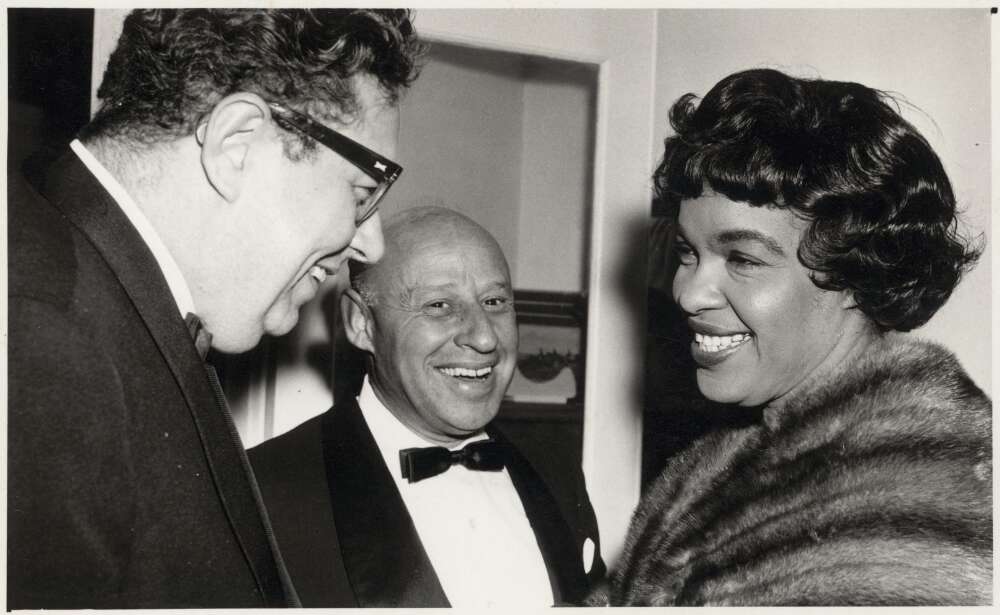
Photo by Jay, Harry. (circa 1955). Winifred Atwell with her husband Lew Levisohn [left] and Kenn Brodziak Retrieved from http://nla.gov.au/nla.obj-144631215
In the Spring of 2022 a new piano headstone 'mysteriously appeared' monument to Winifred and her husband appeared and now marks their burial site at the small, private cemetery south of Lismore.
Rumours abounded as to who the benefactor might be, but it's unknown who is responsible for commissioning the headstone in the shape of a full size piano. Some state renowned pianist Elton John is behind the tribute. Elton played a concert in Coffs Harbour in 2020 and is a self-professed fan of Winnie - he credited her as an inspiration during a BBC Radio interview with Matt Everitt in 2016, stating her vitality and joy when she played the piano, both classical and honky tonk, was something he wanted to emulate on stage.
"I loved her and wanted to be like her. She was my hero," he said.
''I loved her and wanted to be like her. She was my hero.'' - Elton John on Winifred Atwell
Others suggest the person responsible might be much closer to home, but it is not known for sure.
Prior to then Winnie's burial site at south Gundurimba was marked by an unassuming plaque and a memorial book listing her great success.
Winnie left her estate to the Australian Guide Dogs for the Blind and a small amount to her goddaughter.
In November 2020, a Nubian Jak Community Trust black plaque honouring Atwell was unveiled at the former site of a hair salon she owned in Chaucer Road, Brixton, South London.
And of course.... the lady herself must have the final word... and notes......;
Winifred Atwell - 'The Amazing Miss A' , threads collected and collated by A J Guesdon, 2024 - with HUGE thanks to Sue Harrington and all who shared their memories of Winnie.
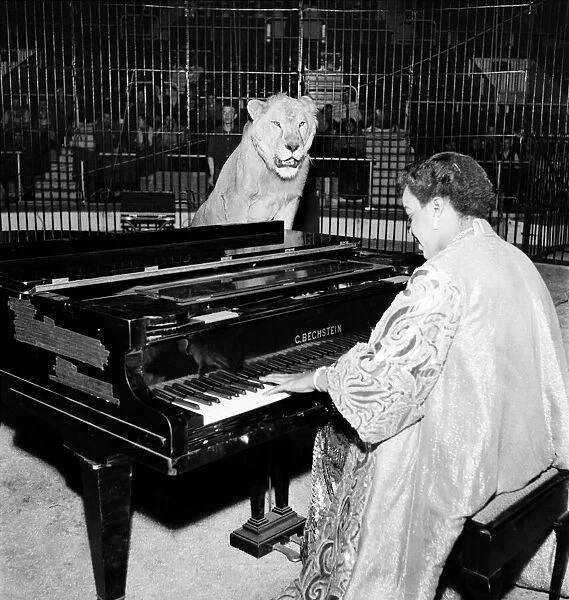
.jpg?timestamp=1715447917030)